Shows
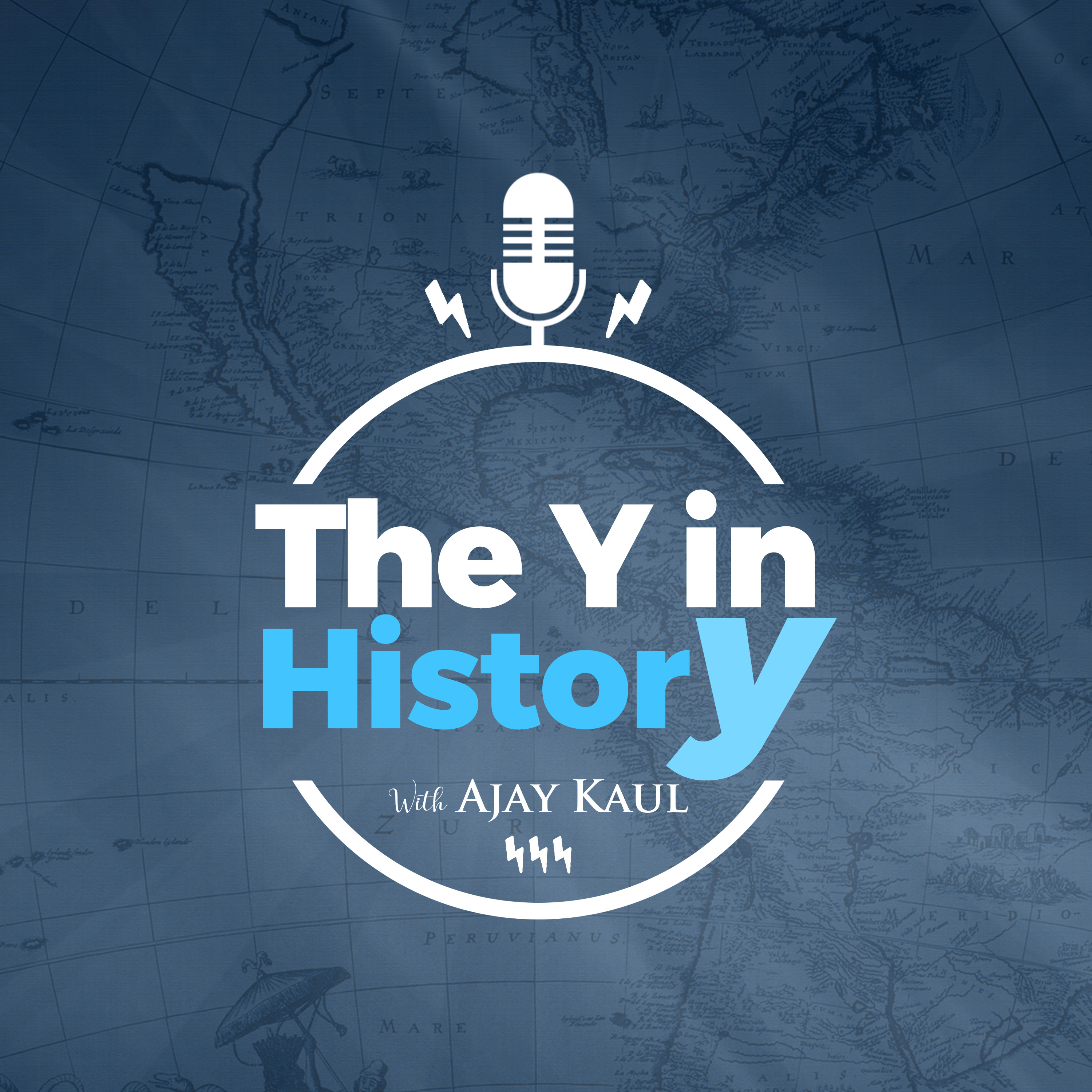
The Y in HistoryThe Japanese Economic MiracleThe 1950 Korean War provided the necessary boost to the Japanese economy post WWII. But a combination of factors, from export oriented growth to process innovation, spearheaded Japan to the second largest economy in the world from 1968 to 2010. A look at the factors that led to this economic miracle.
2026-01-1021 min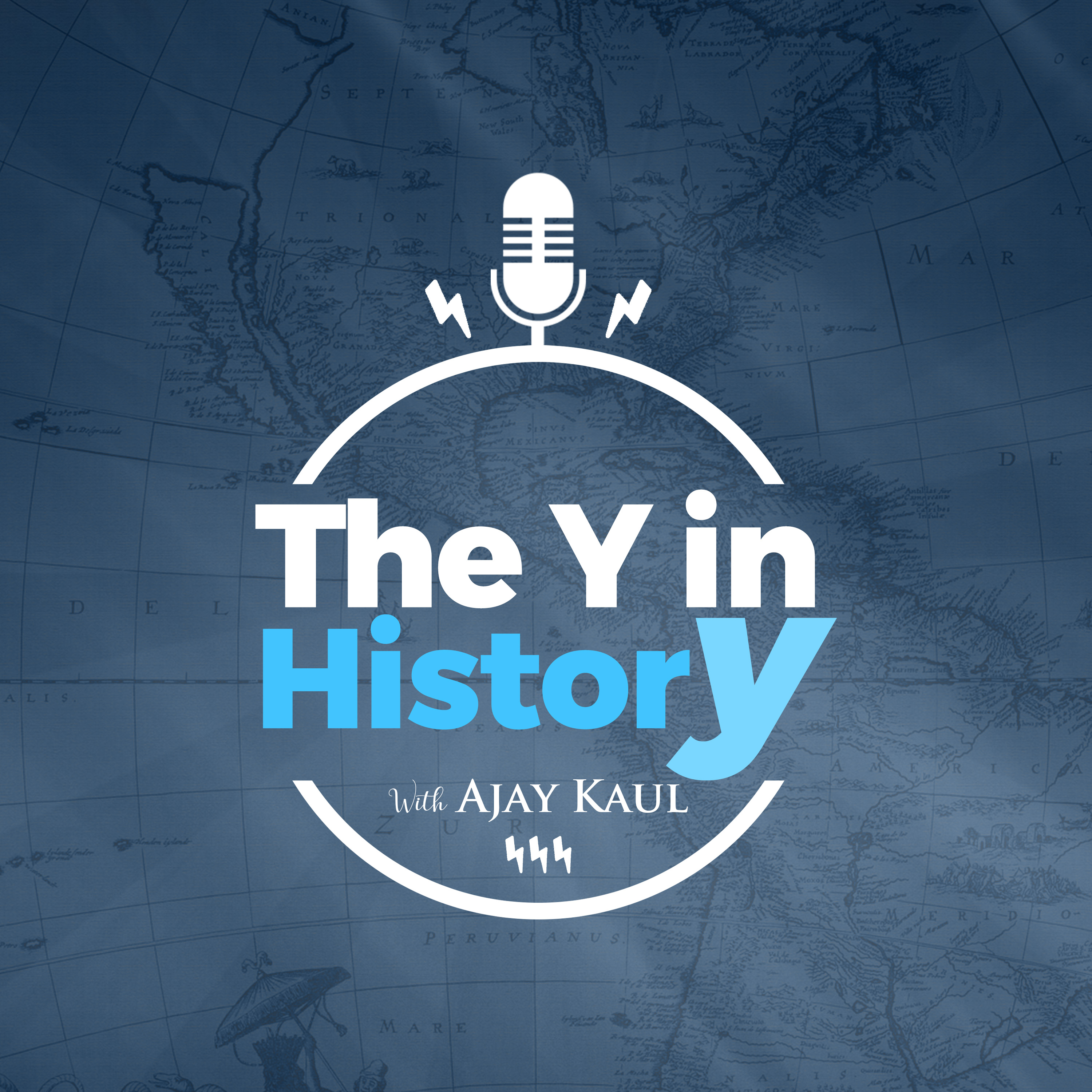
The Y in HistoryUnbelievable facts from HistoryEinstein's brain was stolen at the time of his death, for research. The Great Fire of London of 1666, led to the creation of the Insurance industry. Tune in to this episode to listen to some unbelievable facts from history.
2025-12-0622 min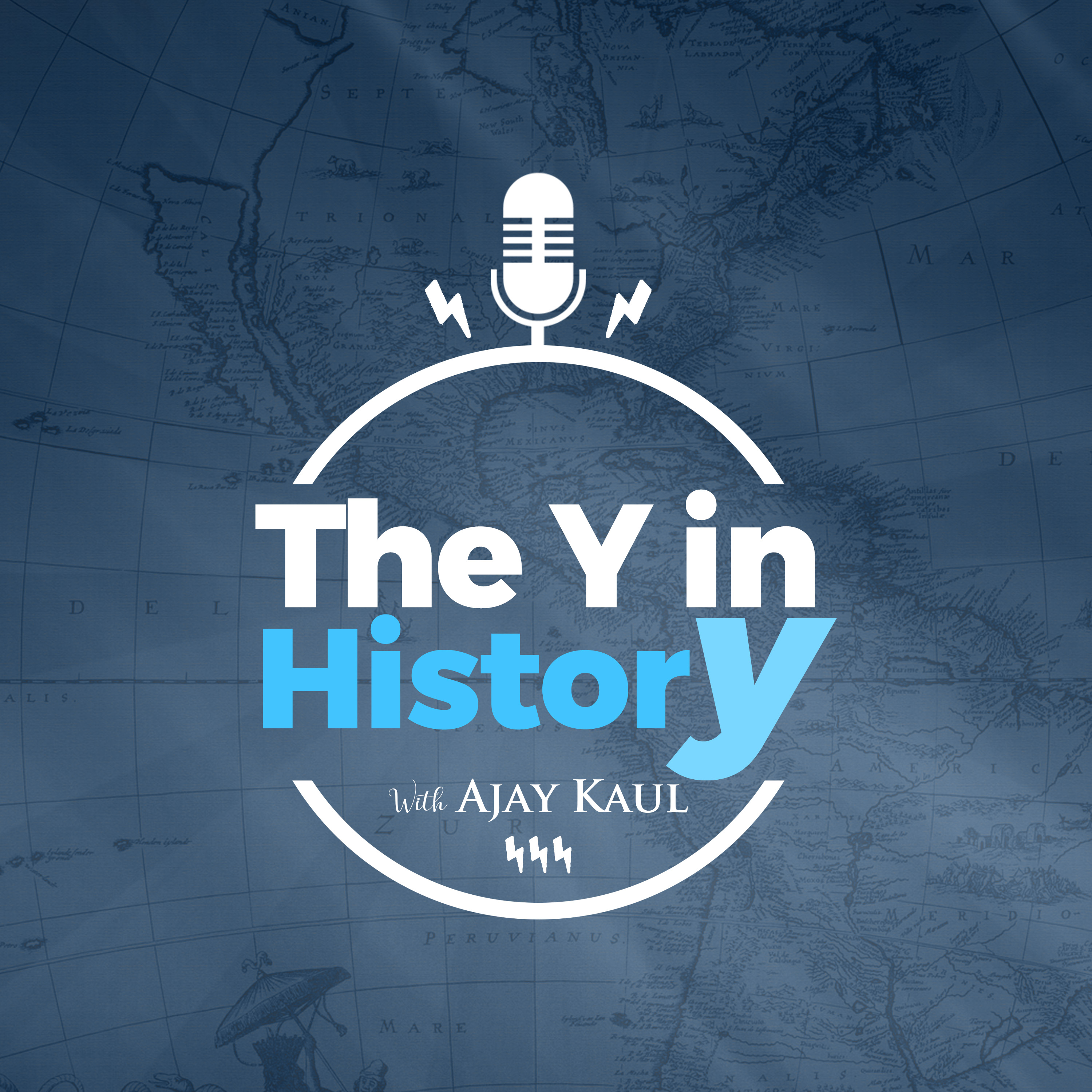
The Y in HistoryGreatest HeistsThe 1976 Societe Generale heist, is considered the Heist of the 20th Century. The 2003 Antwerp Diamond Heist is considered the Heist of the 21st century. But one individual, operating solo pulled off a heist, mid-air in 1971.
2025-11-2226 min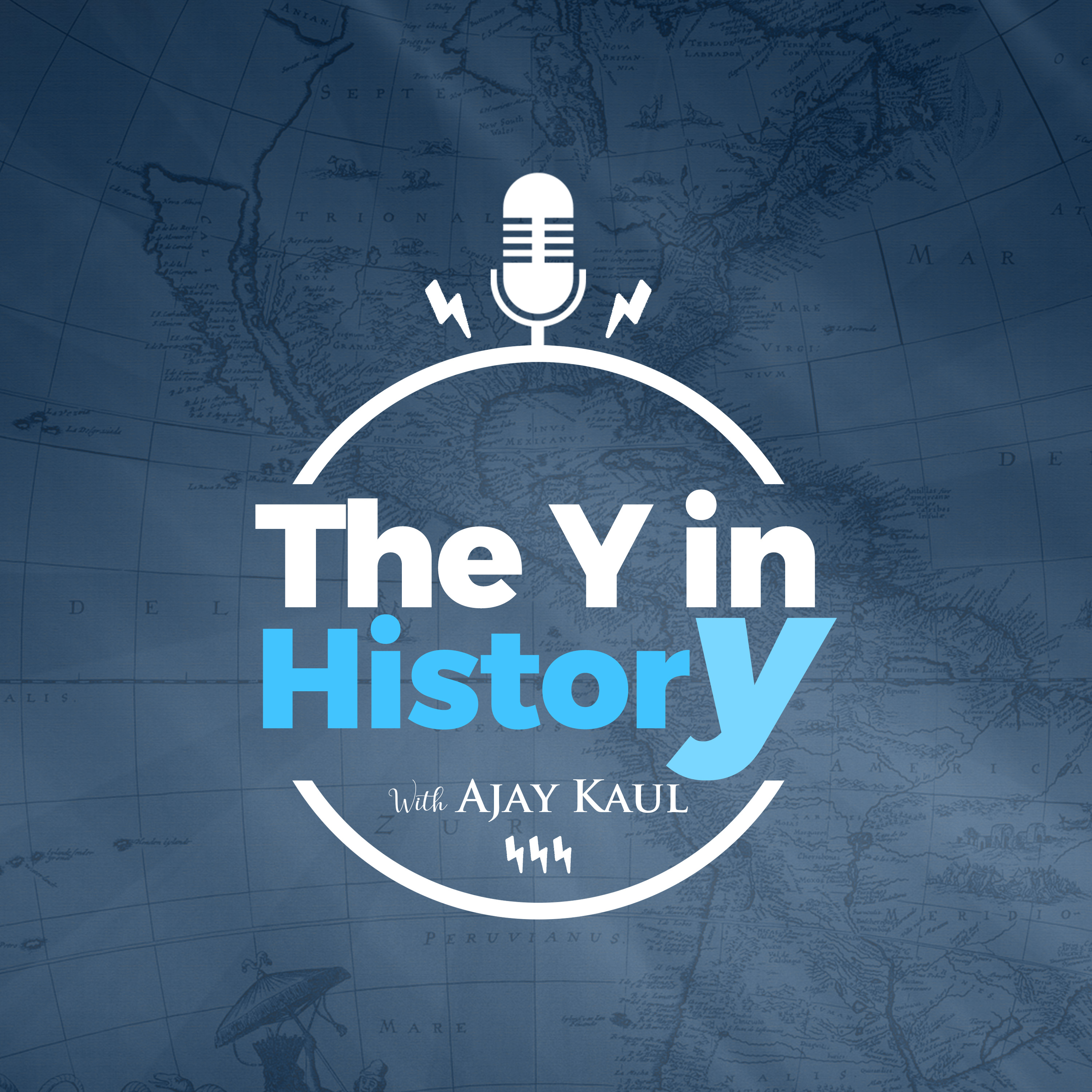
The Y in HistoryA history of Technology - part IIThe Industrial Revolution took off on the foundation of Mechanical Engineering. But by mid-20th century, post WWII, electronics triggered a new revolution, miniaturizing devices and bringing sophisticated tech into the home. In late 2022 though, ChatGPT heralded the era of Artificial Intelligence.
2025-11-0821 min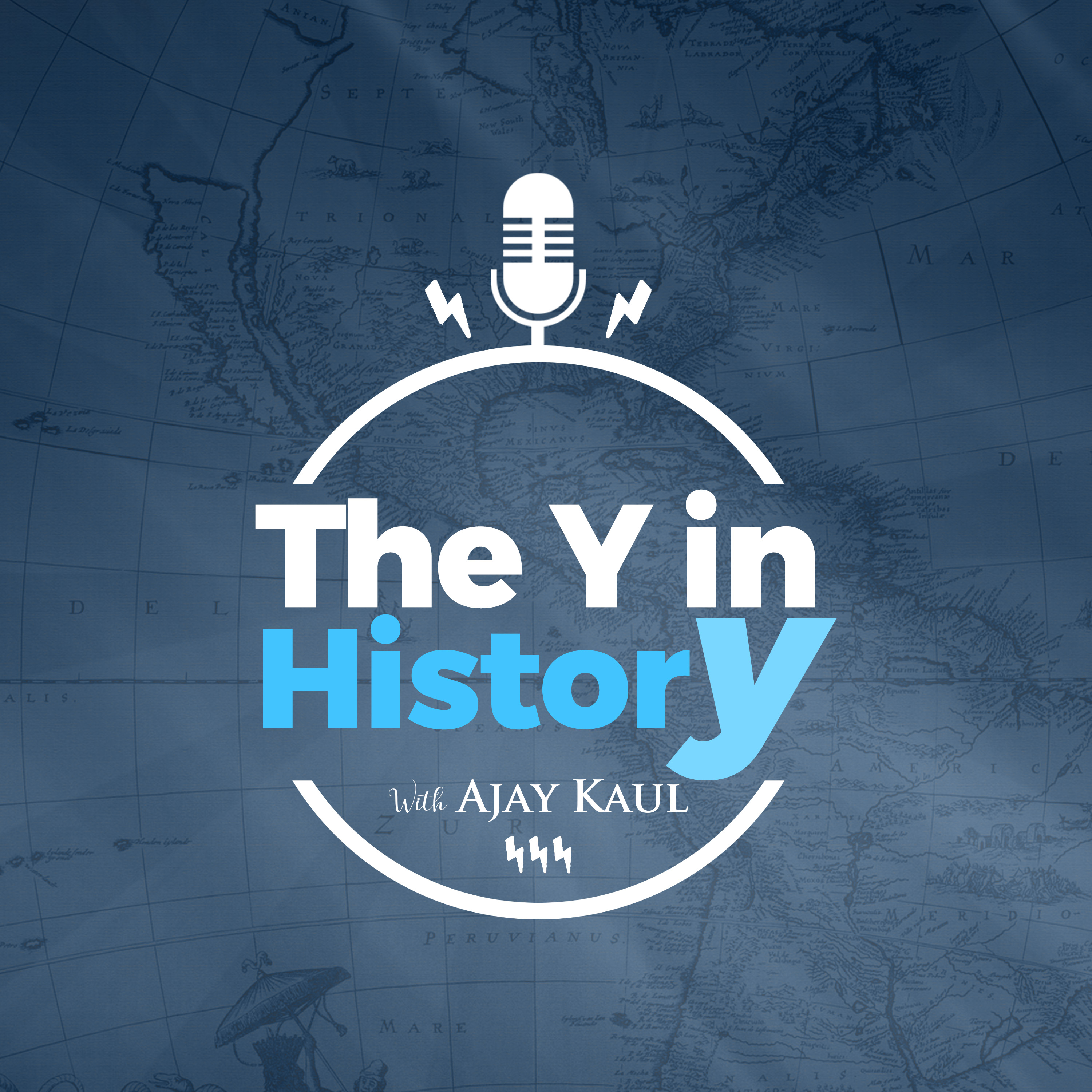
The Y in HistoryA history of TechnologyMechanical Engineering was the first branch of engineering to be understood by ancient civilizations. The wheel and the plough are testament to this fact. From the wheel to the steam locomotive, this episode traces the evolution of human societies and commerce, with the evolution of technology.
2025-10-2521 min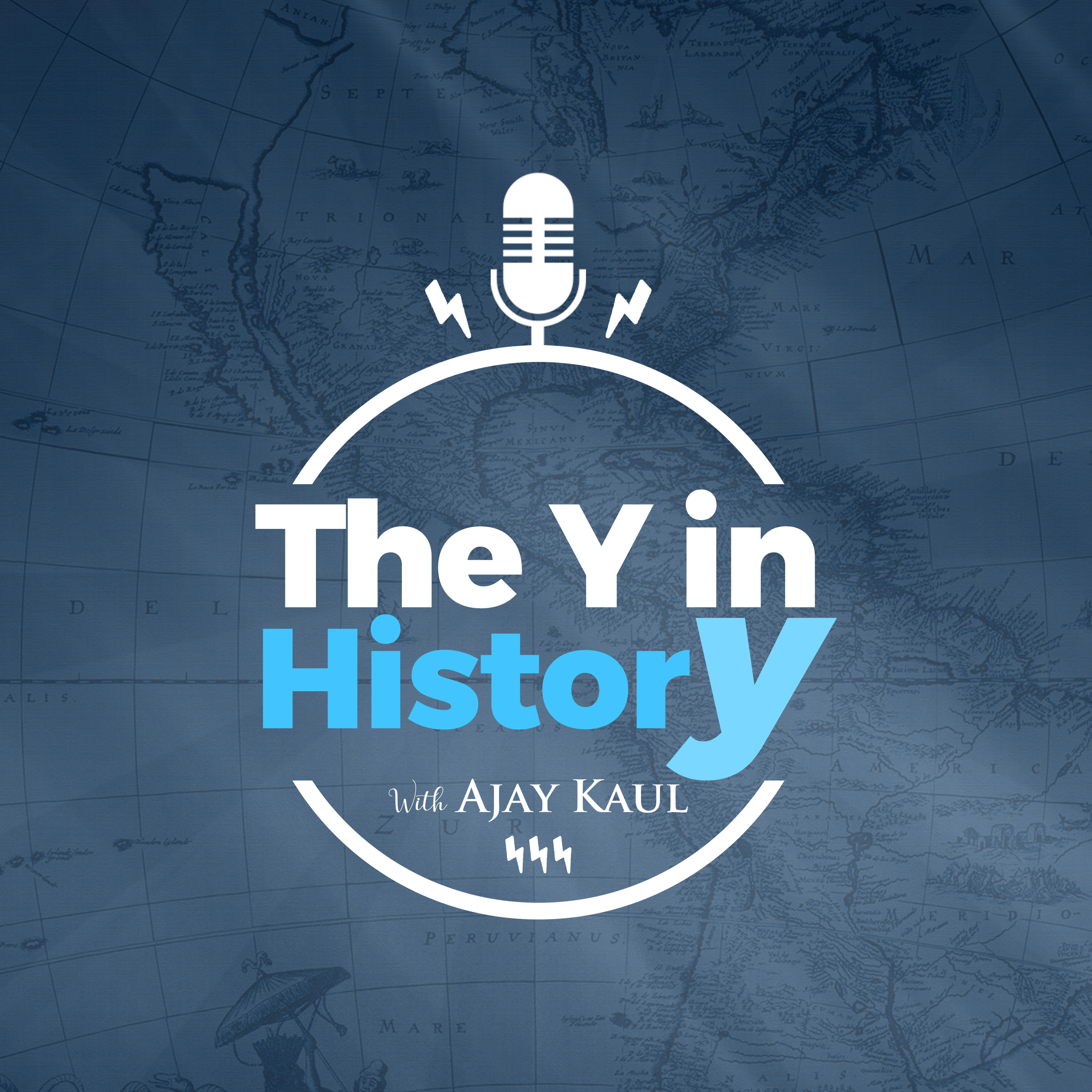
The Y in History1991 - India's Economic Liberation and rise as an economic superpower India's second economic phase began with the landmark economic reforms of 1991, triggered by a balance of payments crisis. These reforms ushered in an era of liberalization, privatization and globalization that dismantled many of the past restrictive economic policies. This shift led to significantly higher growth rates, averaging 6-7% annually, propelling India to become one of the world's fastest-growing major economies.
2025-10-1128 min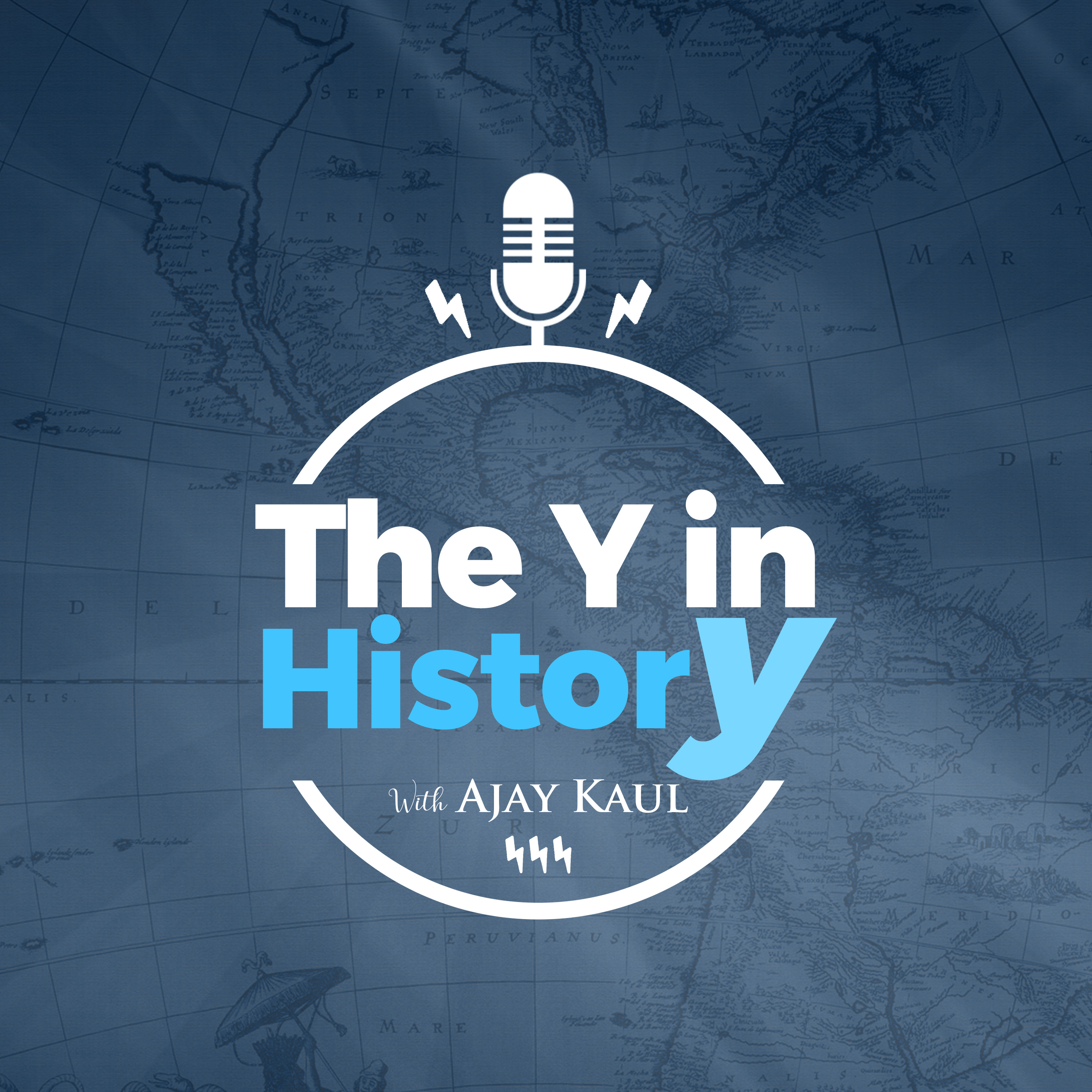
The Y in History2025 - the Nepal Gen Z ProtestsNepal's Gen Z rose in protest against corruption and nepotism in the country following the social media ban imposed by the government in September 2025. Within a week, the protests had resulted in the Prime Minister stepping down and a new interim Prime Minister being sworn in, after winning an online vote conducted by the Gen Z'ers. So have we finally entered the era of social media, on the political front with the new generation using online platforms to determine the political fate their respective countries?
2025-09-2722 min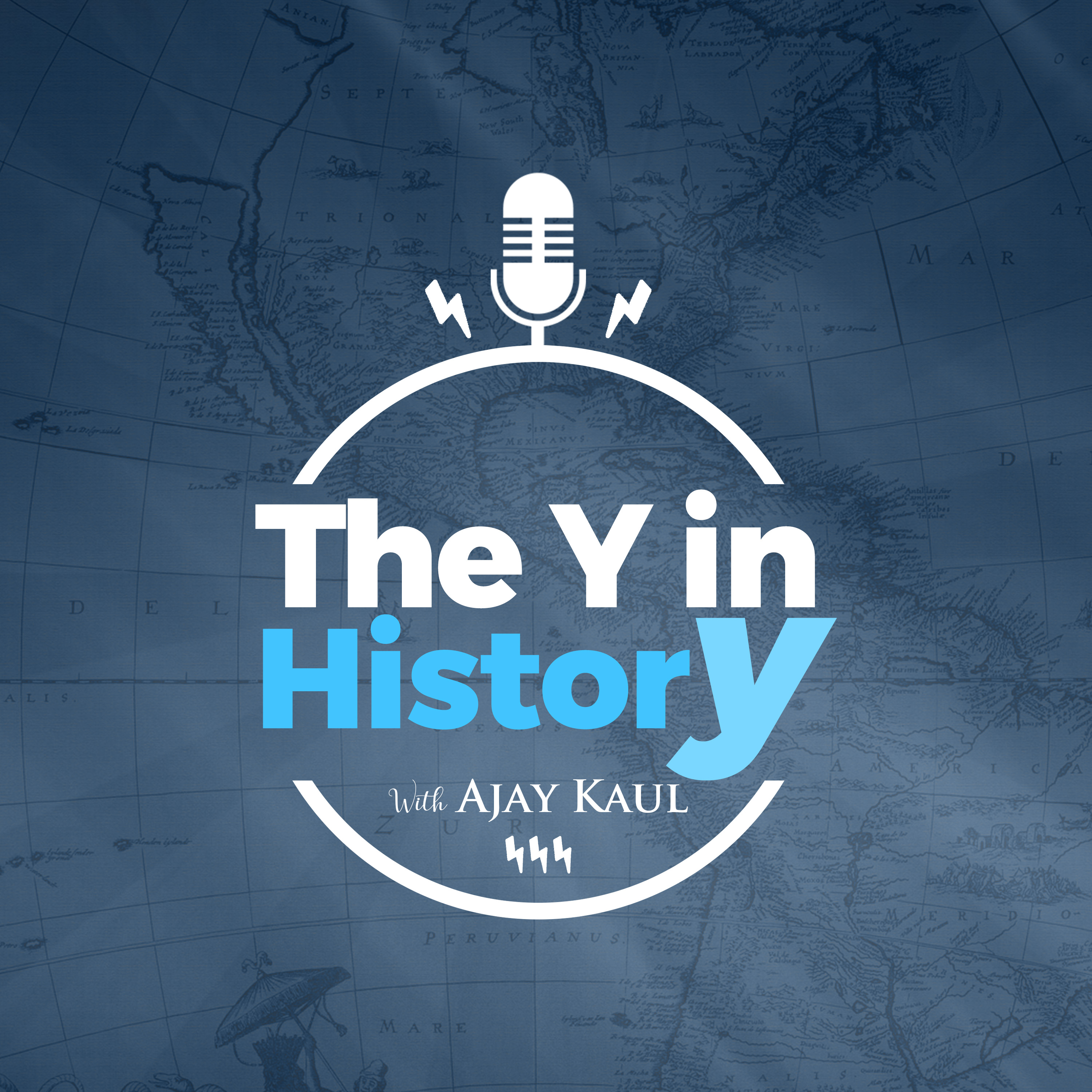
The Y in HistoryThe Nuremberg and Tokyo Trials The Nuremberg and Tokyo Trials were based on the London Agreement, signed on August 8, 1945, which was an accord between the United States, Great Britain, France, and the Soviet Union to establish an International Military Tribunal to prosecute the major war criminals of the European Axis. It provided a legal framework that codified crimes against peace, war crimes, and crimes against humanity, laying the foundation for the Nuremberg and Tokyo Trials. Beginning on November 20, 1945, 22 Nazi officials were brought to trial in the city of Nuremberg in Germany. And on May 3, 1946, 28 Japanese Military and Civil Leaders were brought to...
2025-09-1325 min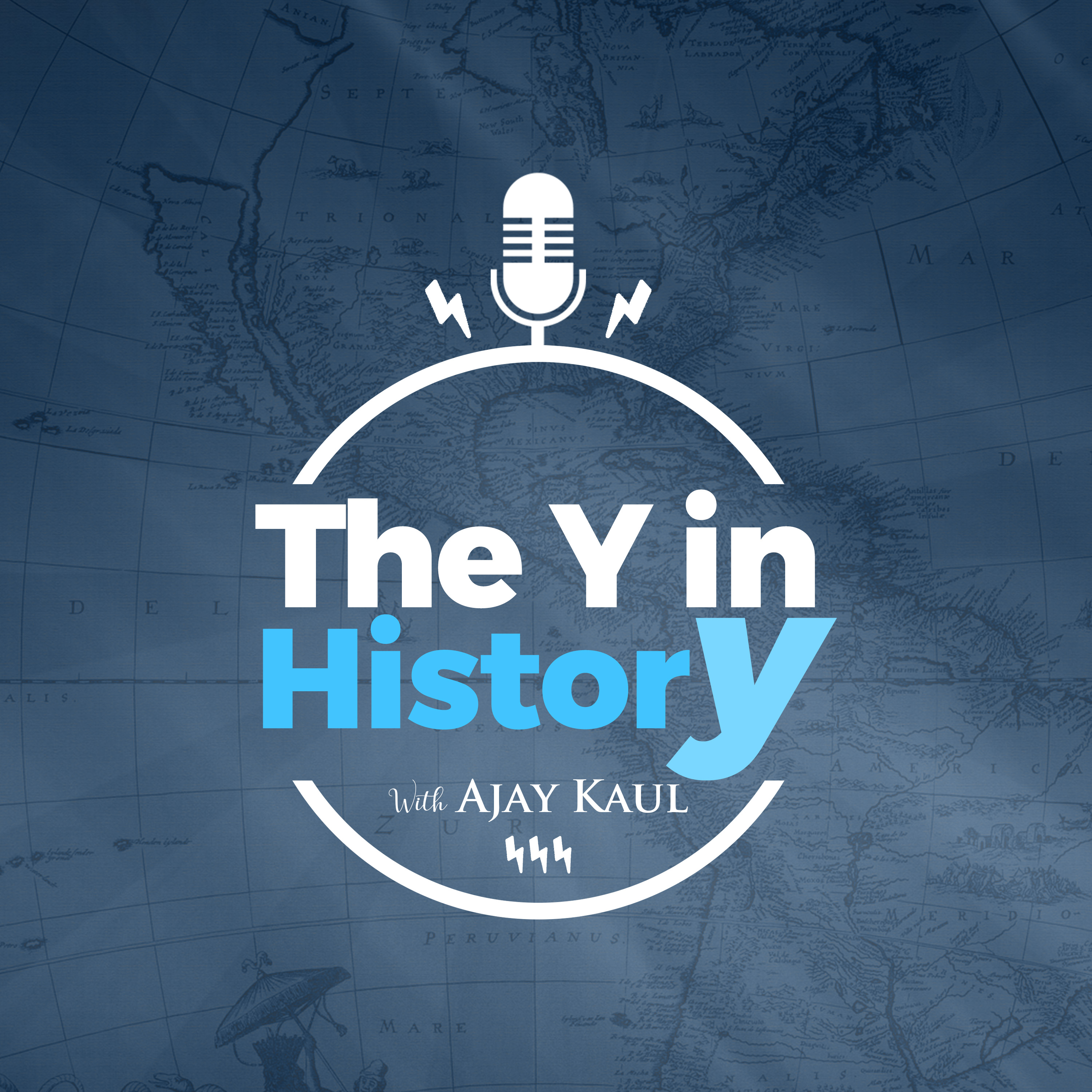
The Y in HistoryCapitalism, Socialism and CommunismThough various forms of Capitalism have existed since ancient times, Adam Smith in 1776, was the first to philosophize the concept of free markets. The Industrial Revolution gave Capitalism a massive boost but the exploitation of labor led Karl Marx to publish the Communist Manifesto in 1848 and Das Kapital in 1867.
2025-08-3022 min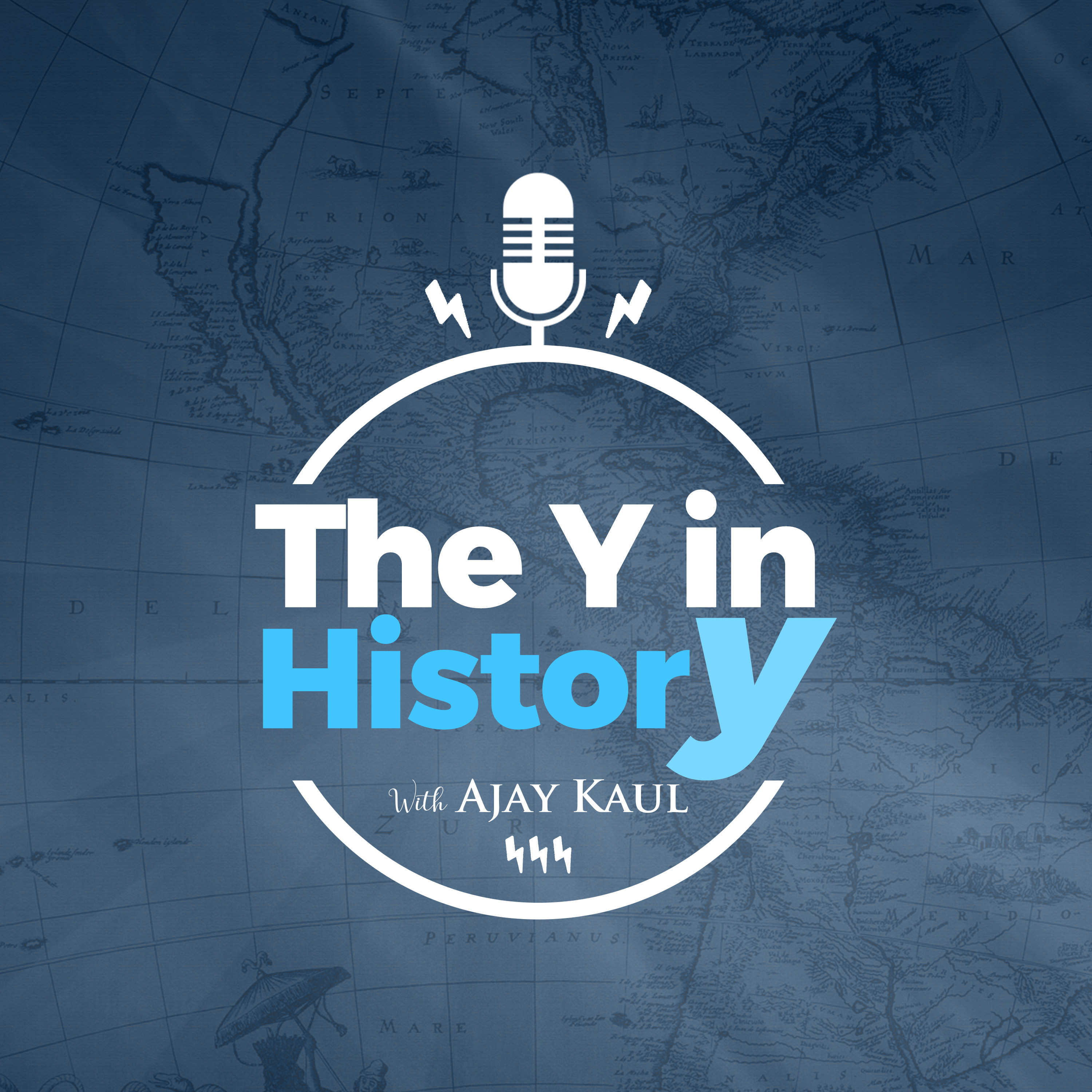
The Y in Historythe Bermuda TriangleThe mystery of the Bermuda Triangle dates back to 1492 when Christopher Columbus was attempting to reach Asia. During his journey, he passed through this infamous region of water, and according to his notes, something peculiar happened to his compass. He observed that "at the commencement of the night, the needles turned a half point northwest, and in the morning, they turned somewhat more northwest." He also reported the sea rising and a flickering light in the distance, like a candle. The mysterious disappearances/incidents within the Bermuda Triangle include Flight 19, USS Cyclops and the ship Ellen Austin.
2025-08-1623 min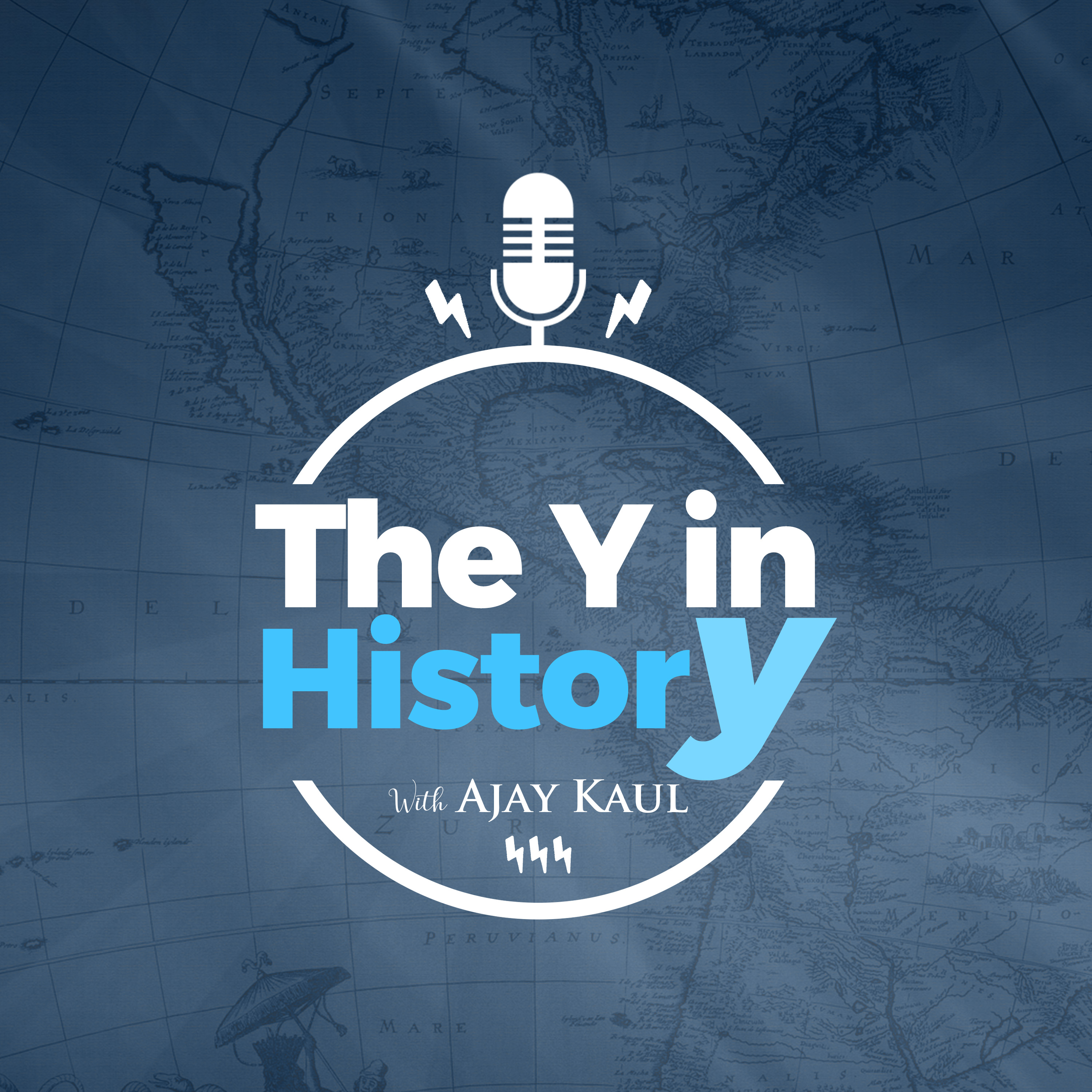
The Y in History2025 - Israel's Operation Rising LionOn June 13, 2025, Israel initiated Operation Rising Lion against Iran, shifting the balance of power in the Middle East. Iran's nuclear sites were bombed, its Air Defense Systems, crippled and top military leadership and nuclear scientists, assassinated. But did Israel achieve the objectives of this operation?
2025-08-0224 min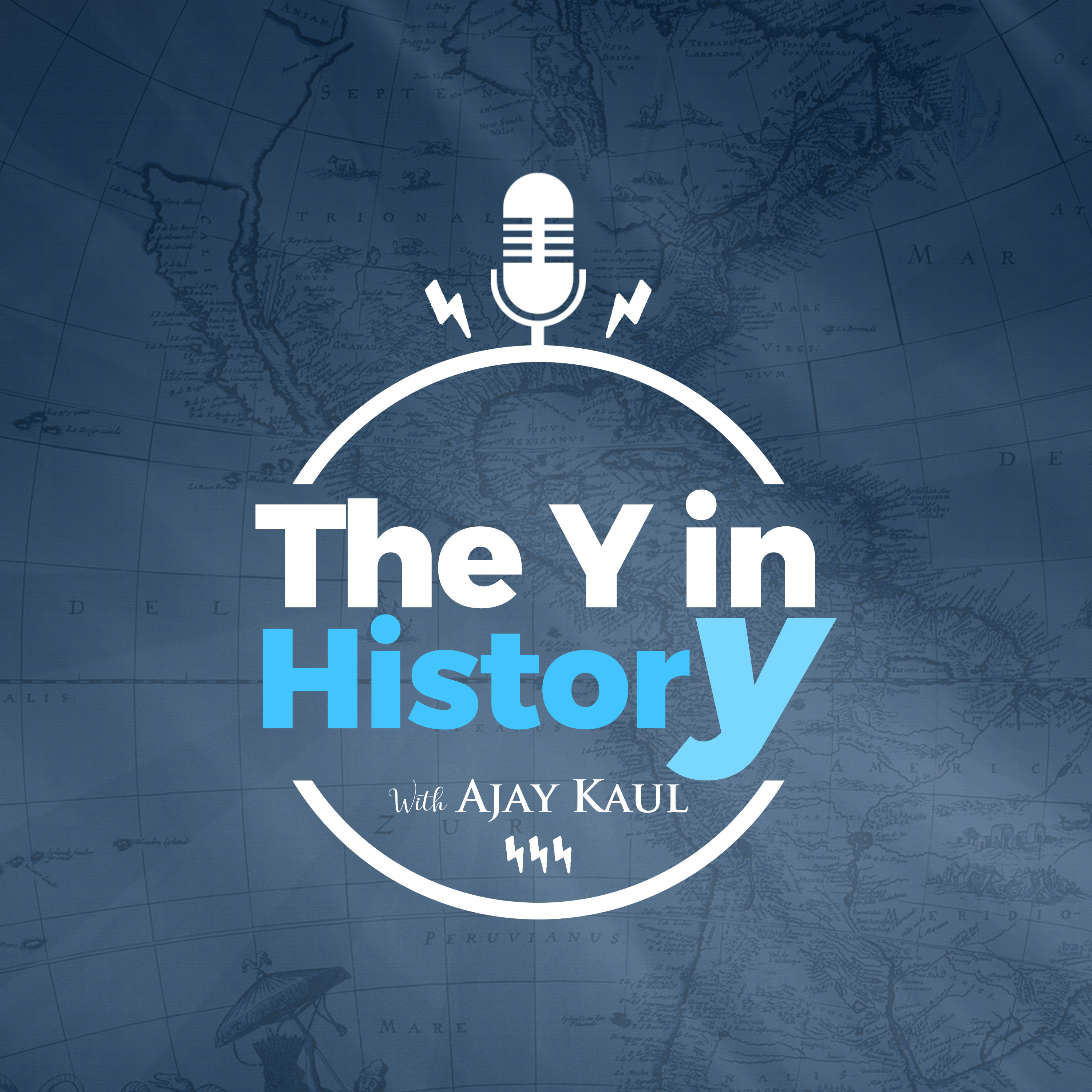
The Y in HistoryA history of CyberattacksThe first computer virus is believed to have been used in 1969 at the University of Washington Computer Center. A person who has never been named installed a program that came to be known as "RABBITS Virus" on one of the computers. The program began replicating itself until it overwhelmed the computer causing it to shut down. Over the years, the scale and sophistication of cyber attacks has increased and with the advent of AI, digital criminals have jumped on the AI bandwagon and become more lethal.
2025-07-1920 min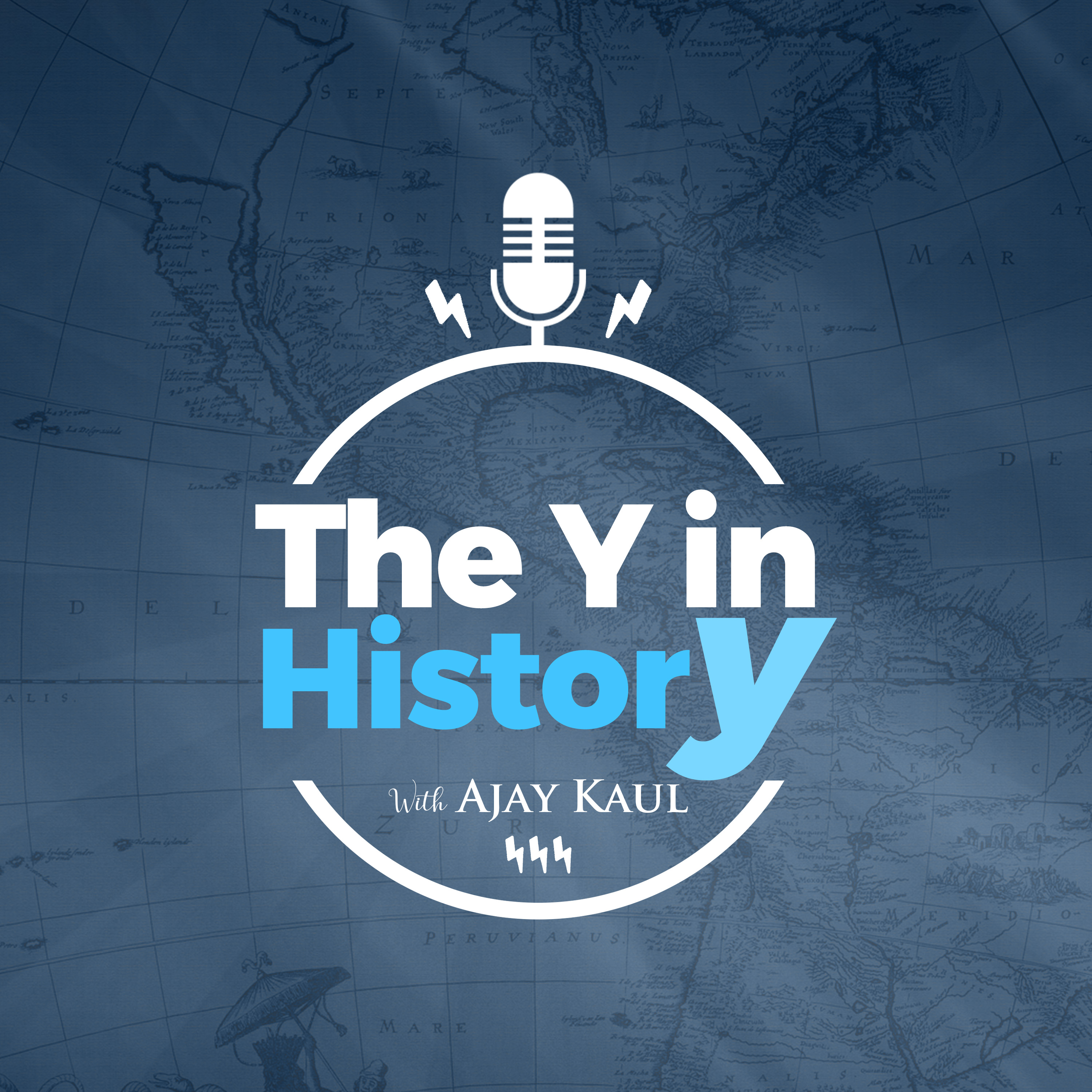
The Y in HistoryGlobal Aviation DisastersThe 1956 Grand Canyon Air crash, the 1977 Tenerife Air Disaster and the 2005 Air France 744 crash were air disasters that had a lasting impact on avaiation safety.
2025-07-0525 min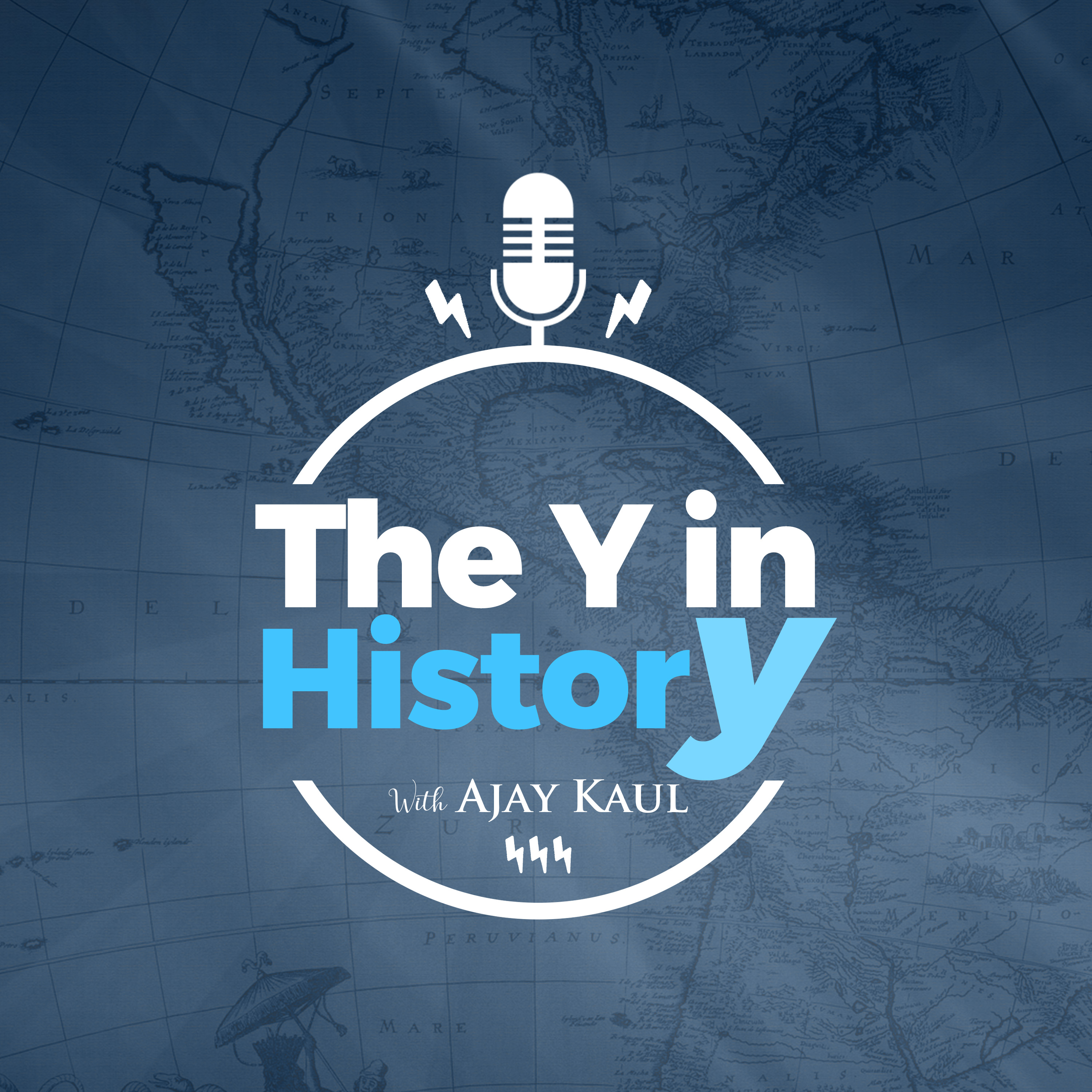
The Y in History1989 - Tiananmen Square massacreThe Tiananmen Square protests started in April 1989 with students protesting in favor of a proper state funeral for the popular but disgraced reformist leader, Hu Yaobang. Tensions between the Student Leaders and Chinese government escalated due to a series of missteps from the Chinese government. On June 4, 1989, army tanks rolled into the Tiananmen Square to crush the revolt via military might.
2025-06-2124 min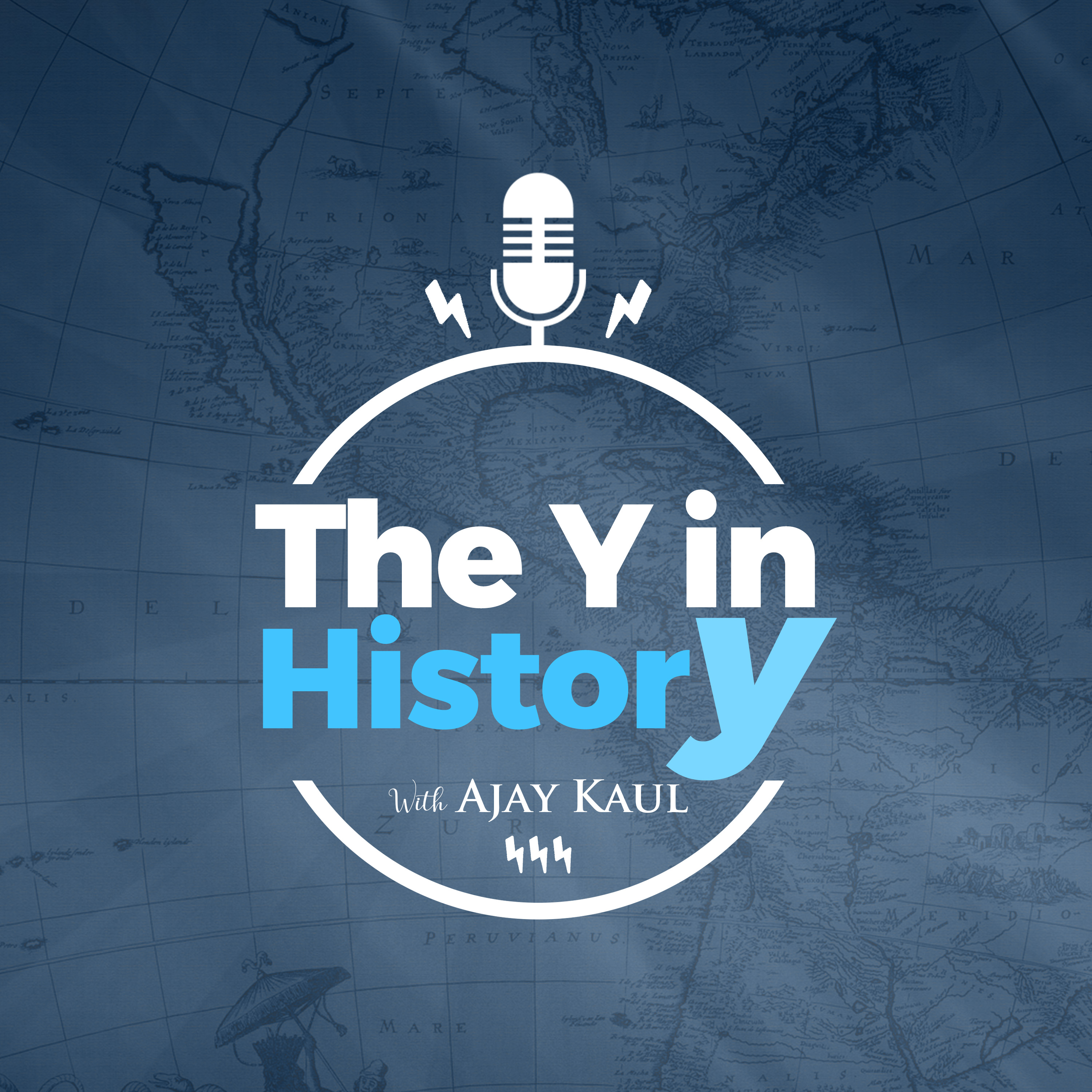
The Y in HistoryThe US rise to Global PowerThe Spanish-American War of 1898 marked the first milestone of the US making an appearance as a global power. But the period between the two World Wars was one of isolation for the US. However, once it entered WWII in 1941, the US showed it military, economic and financial might, emerging as a global Super power, by the end of the War.
2025-06-0722 min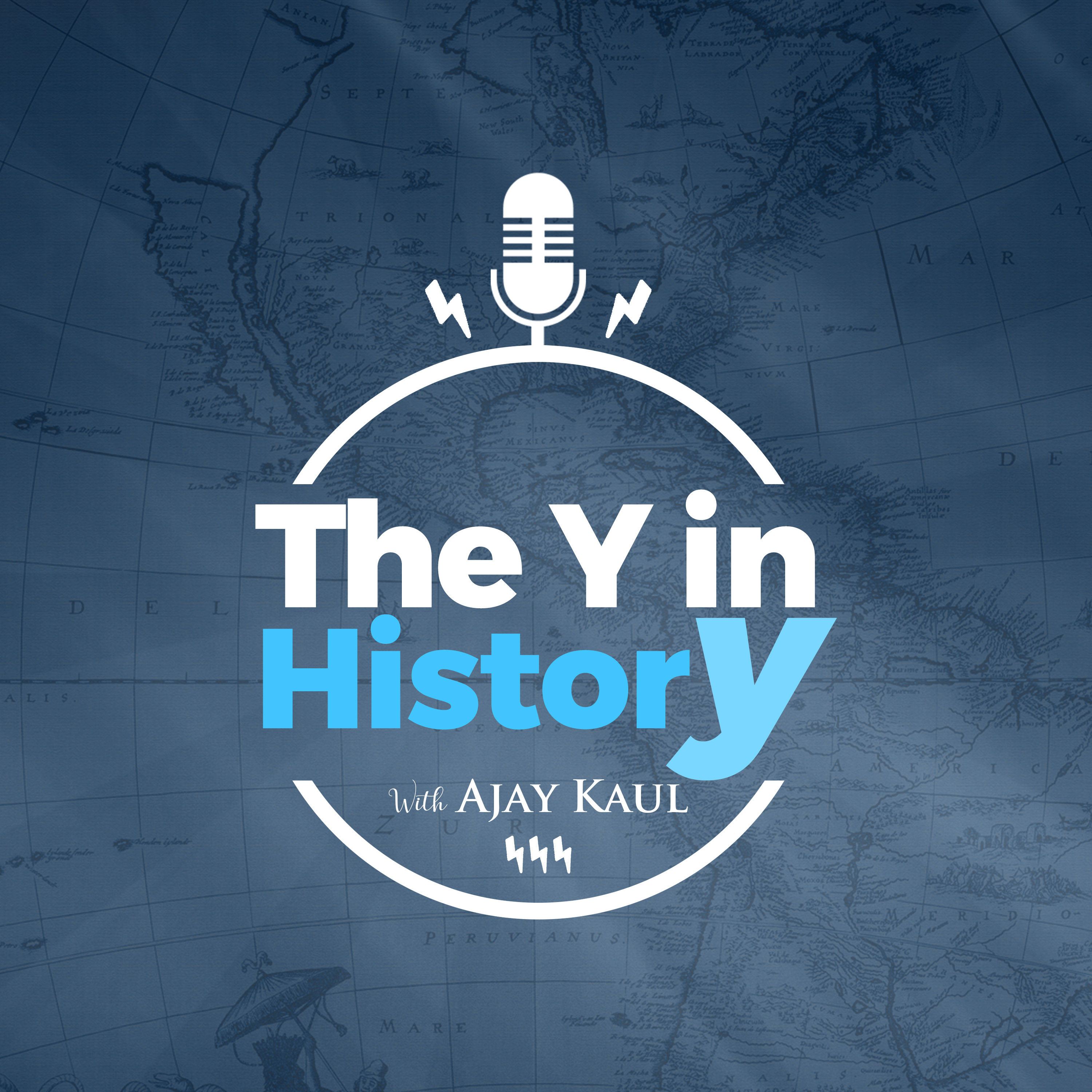
The Y in HistoryPakistan Terror CampsAfter the Soviet invasion of Afghanistan in 1979, the CIA began a covert operation known as "Operation Cyclone", aiming to support Afghan mujahideen through funding, training, and supplying weapons. Pakistan's Khyber Pakhtunkhwa region became the hub for the mujahideen training camps. Gradually, Pakistan expanded its terror training infrastructure and expertise to its north eastern border with India to conduct a proxy war in the Indian states of Punjab and Kashmir. Pakistan now struggles to contain this Frankenstein it created, in the 1980s.
2025-05-2422 min
The Y in HistoryGlobalization - a historyEuropean Explorers kicked off globalization during the Age of Discovery as they ventured to find a see route to India and circumnavigate the globe. This was followed by the first wave of globalization from 1870 to 1914. Post WWII, the US led the establishment of a new financial order which culminated in China joining the WTO in December 2001.
2025-05-1022 min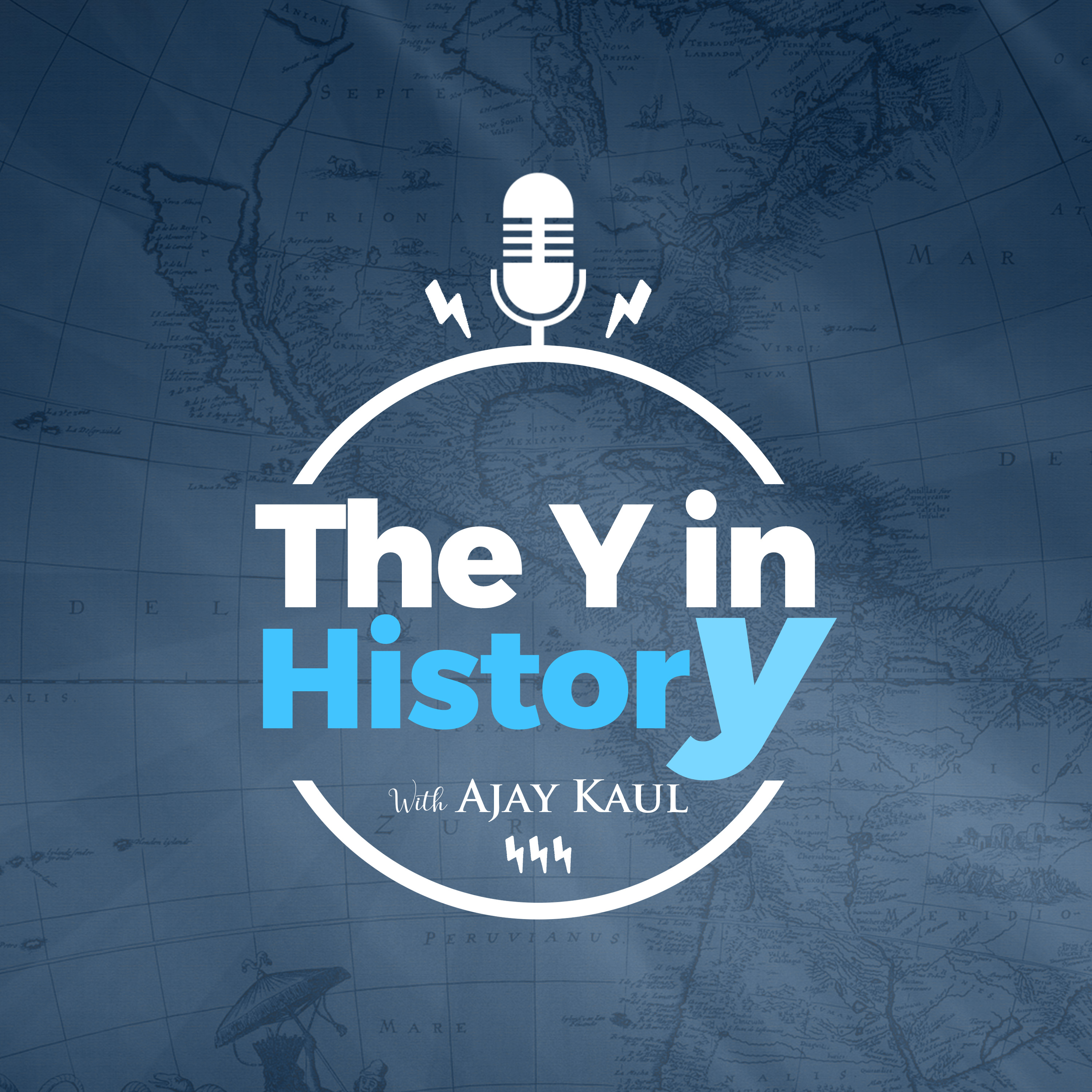
The Y in History1914 - the Panama CanalAfter taking over from the French, the US oversaw the successful opening of the Panama Canal on August 15, 1914. 3 Chief Engineers - Wallace, Stevens and Goethals overcame several odds, both engineering and manpower related, during their respective tenures, to see the Canal through to completion. Equally commendable was the contribution of Chief Sanitation Officer, William Gorgas in defeating the scourge of Yellow Fever and Malaria, within the Canal Zone.
2025-04-2625 min
The Y in History2023 - the Israel Gaza WarPost the Oct 7 attack by Hamas, Israel declared war in Gaza. Initially, the civilian population was asked to migrate South, but subsequently, Southern Gaza was attacked as well, leading to a human catastrophe. Towards late 2024, several Hamas and Hezbollah leaders were assassinated, but peace continues to evade the region, with both sides hardening their stance. But, there is a glimmer of hope.
2025-04-1222 min
The Y in History2023 - the HAMAS Oct 7 AttackOn October 7, 2023, HAMAS surprised Israel by infiltrating into Israeli territory after breaching its defenses along its border with Gaza. Who were the masterminds and who were the financiers? And how did HAMAS manage to keep Israel in the dark about this operation? Tune in for some eye-opening revelations.
2025-03-2921 min
The Y in HistoryEspionage - the MolesDuring and after WWII, the Cambridge Five spy for the KGB while working within the British government. CIA's billion dollar spy volunteers to be a mole to exact revenge on Soviet Russia. The Head of German Military Intelligence during WWII tries to sabotage Hitler's plans as he gets disillusioned with Hitler's leadership.
2025-03-1525 min
The Y in History1948 - the Marshall PlanOn April 3, 1948, President Harry Truman signed the Economic Recovery Act of 1948, aka the Marshall Plan. Named after Secretary of State George Marshall, who in 1947 proposed that the United States provide economic assistance to restore the economic infrastructure of postwar Europe, the Plan contributed $13.3 billion in aid to 16 European nations between 1948 and 1951. The successful design, planning and execution of the Plan has been a role model for several development plans across the globe.
2025-03-0123 min
The Y in HistoryUS Democracy and OligarchyIn 2010, the Supreme Court issued a ruling in Citizens United v. Federal Election Commission case that corporations (and, by extension, unions and other groups) may make unlimited expenditures on messages encouraging votes for or against specific candidates, so long as they're not coordinated with candidates or parties. This gave birth to Super PACs and a foray of oligarchs in the US democratic process. The first group of oligarchs though, influenced US democracy in the late 19th Century during the gilded era. With the Tech oligarchs at the helm in 2025, lot more is at stake than just election influence.
2025-02-1520 min
The Y in HistoryNuclear disaster - near missesSeveral times during the Cold War, the World came dangerously close to a nuclear disaster. In 1961 and 1968, B52 Bombers carrying nuclear bombs met with accidents nearly leading to a nuclear catastrophe. In 1983, one Soviet Lt. Col. single handedly saved the world from WWIII when he categorized an alarm about 5 missiles being launched at the Soviet Union, a false alarm. NATO conducted a WWIII simulation in 1983, which the Soviets assumed, was cover for an actual nuclear strike from the West.
2025-02-0122 min
The Y in HistoryUS Healthcare - a history From a global perspective, there are four main models of health care, each of which takes a different approach both legislatively and in practical terms of how it affects a populace's ability to obtain health care coverage and services. In 1929, Blue Cross established the first employer-sponsored health coverage in Dallas as a partnership between the Baylor University hospital and its patients. One of the largest health care acts in American history, commonly referred to as the Medicare and Medicaid Act, was approved by President Lyndon B. Johnson in July 1965. After intense debate, lawmakers passed the Patient Protection and Affordable...
2025-01-1824 min
The Y in HistoryUS Presidential Elections (1936 - 1996)FDR led the US and the World out of the Great Depression, and success in WWII. Harry Truman followed suit but the 22nd Amendment to the Constitution formally set term limits on US Presidency. The JFK-Nixon election of 1960 was very close and Nixon refused to contest the results to keep America's image on the global front, intact. LBJ saw the passage of the Civil Rights Act of 1964, which led to the South leaning Republican. After a scandalous 2nd Presidential term for Nixon, Jimmy Carter took office on a platform of love and trust.
2025-01-0436 min
The Y in HistoryBizarre Events from HistoryFrom the Dancing Plague of 1518 to the Korea Axe Tree Incident 1976, several bizarre events from history are reviewed in this episode. It includes the soldier who returned after 30 years and an animal species who emerged victorious in a fight with humans.
2024-12-0722 min
The Y in HistoryUS Presidential Elections (1872 - 1932)From the start of the Civil War to the election of 1928, the Republicans held a stranglehold on the US Presidency barring four Presidential terms from Democrats Grover Cleveland and Woodrow Wilson. However, with the onset of the Great Depression at the time of the election of 1932, the entire political landscape underwent a massive change.
2024-11-2325 min
The Y in HistoryUS Presidential Elections (1789 - 1868)The first US Presidential Elections were held in 1789 and George Washington was elected President. John Adams polled the 2nd highest electoral votes and became Washington's VP. A tie in the Election of 1800 brought in the Twelfth Amendment to the Constitution, which established separate votes for the President and the VP from the election of 1804. The Slavery debate dominated politics through most of the second half of the 19th Century, triggering the American Civil War as Abraham Lincoln was sworn in as the 16th US President.
2024-11-0925 min
The Y in HistoryVietnam War - the battles, bombings, accords and conclusionPost 1956, several battles are fought between North and South Vietnam. The Gulf of Tonkin Resolution of 1964 gives US President LBJ authority to increase US involvement in the Vietnam War. This is followed by targeted bombings under Operation Rolling Thunder by the US and counter offensives by the Viet Cong like the Tet Offensive. Agent Orange and Napalm droppings lead to a massive ecocide with severe after effects on the human population. Paris Accords of 1973 call for a ceasefire and North Vietnam triggers one last offensive towards reunification.
2024-10-2627 min
The Y in HistoryVietnam War - the origins and early daysJapan occupies Vietnam temporarily, after defeating the French during WWII. After WWII, the French come back and Vietnam gets divided into North and South Vietnam at the 17th parallel. Ho Chi Minh becomes the leader in the North. The French support ex-Emperor Bao Dai in the South, but the US supports his Premier Ngo Dinh Diem. The conflict starts when the US refuses to hold elections in 1956 per the Geneva Accords of 1954.
2024-10-1225 min
The Y in HistoryCovert Ops - Hitler, CIA and Civil WarThe July 20 plot was intended to assassinate Hitler and invoke Operation Valkyrie in Germany, post the assassination. LBJ and Nixon got the CIA to snoop on US students under Operation CHAOS. The Union soldiers initiated the Great Locomotive Chase during the Civil War, to cut off the Confederacy's supply routes.
2024-09-2825 min
The Y in Historythe history of Cinema In 1891 the Edison Company successfully demonstrated a prototype of the Kinetoscope, which enabled one person at a time to view moving pictures. The first to present projected moving pictures to a paying audience were the Lumière brothers in December 1895 in Paris, France. The first feature-length movie incorporating synchronized dialogue was The Jazz Singer in 1927. A 20-year stretch, from 1927 to 1948, is considered the Golden Age in the history of Hollywood.
2024-09-1422 min
The Y in Historythe physics of DictatorshipsDictatorships can be classified into Military, Hybrid, Dynastic Civilian and the Democratically elected dictatorships. Dictators aspire to stay in power for a long time and do so by instilling fear in their citizens. And once they've achieved this, some prefer to build a cult following. But under certain circumstances Dictatorships can be toppled and replaced by Democracy.
2024-08-3121 min
The Y in HistorySingapore - the Economic miracle The British arrived in Singapore in January 1819 when Sir Stamford Raffles landed on the island, establishing it as a trading post for the British East India Company. Singapore declared independence from Britain in 1963 and became part of Malaysia. Due to political and cultural differences, Singapore separated from Malaysia and became independent in 1965. And that was the start of the economic miracle that saw its GDP multiply from $1 billion in 1960 to approximately $300 billion in 2014.
2024-08-1721 min
Chitt ki BaatMan dedicated to save Kashmiri Pundits & Martand Sun Temple | Ajay Kaul | Ep15कश्मीरी पंडितों के साथ कितने और कैसे अन्याय हुए हैं ये बात जग ज़ाहिर हैँ ।
अब हम बिना किसी विवाद के कैसै अपने घर ऊनको वापस लें जायें , कैसे युवाओं को सही दिशा में प्रेरित करें और सबसे ज़्यादा महत्वपूर्ण मार्तंड मंदिर बनाने की शपथ जो अजय कोल जी नें ली है्, ये पोडकास्ट ऊनकी इसी जिदोजहद पर आघारित हैं ।
Some people live their life for one mission, when the mission is dedicated to jan kalyan then divine intervention takes place & things starts falling into place.
Ajay Kaul ji is one of those people, he has made saving Martand Temple and uplifing Kashmiri Pundits his life mission.
There are difficulties he has faced & will be facing but his oath to work for this great mission has become drive of his life.
Lets hear th journey of common man to great man, who is bound to do this historical work, which will be remembered by generations to come.
2024-08-051h 04
The Y in History1975 - Emergency in IndiaIn 1975, the Allahabad High Court finds Prime Minister Indira Gandhi guilty of electoral malpractices during the 1971 election and rules that she needs to step down as Prime Minister. This triggers a series of events that culminate in the imposition of Emergency in India - a period when all civil liberties of common citizens, are taken away by the government.
2024-08-0323 min
The Y in HistoryExplorers and CosmonautsNorway's Roald Amundsen was the first to reach the South Pole in Dec, 1911. Tenzing and Hillary became the first to scale Mt. Everest in May of 1953. Yuri Gagarin had the world spellbound as he became the first human in Space in April 1961.
2024-07-2025 min
The Y in HistoryGreat Political UpsetsAfter leading the United Kingdom during WWII, Churchill loses his re-election bid. Harry Truman surprises polls to defeat Republican Thomas Dewey in 1948. Soviet Premier Nikita Khrushchev is ousted in a very democratic way in the Soviet Union, in 1964.
2024-07-0623 min
The Y in HistoryA history of MedicineModern medicine owes a lot of its development to the Ancient civilizations of Greece, India and China. Modern medicine took off after the Industrial Revolution because of faster spread of disease and infection within large industrial communities. The medical professionals were able to understand bacterial diseases way before they understood viruses. But the electron microscope took medical research to the next level.
2024-06-2222 min
The Y in HistoryThe Children of DictatorsStalin micromanaged his daughter and she ended up defecting to the US. Ferdinand Marcos Jr. though won the Presidential Office his dictatorial father held, via a democratic election. Mao's children mostly died young.
2024-06-0821 min
The Y in HistoryA history of TibetTibetan Empire reached its zenith under Songtsen Gampo's descendant Tri Song Detsuen in 755 AD who expanded Tibet politically and economically and promoted Buddhism to bring the nation together. However, about a century after him, the empire collapsed and Tibet entered its traditional "dark age." The Mongols conquered Tibet in 1244 but let the local Buddhist leaders manage the administrative affairs and Tibet gradually eased into a Theocracy as the Dalai Lama was acknowledged as the Spiritual Head. In 1950, China, looking for a buffer zone between itself and India, invaded Tibet.
2024-05-2525 min
The Y in HistoryCorporate Cheating - Boeing, VW and Wells FargoBoeing hid information regarding the MCAS software from its 737-Max flying manual to short circuit the certification. Boeing's cheating cost 346 lives across 2 plane crashes. Volkswagen had a cheat device software in its diesel cars to circumvent the NOX level requirememts in the US and the EU. Wells Fargo opened millions of bank accounts without customer consent. Is there a pattern across these three cheating scandals?
2024-05-1124 min
The Y in HistoryPutin and Xi - the powerful AuthoritariansPutin was a working class outsider who rose through the ranks to the Country's top job. Once at the top, Putin consolidated his position by eiminating opposition and giving Russia a strategic economic advantage. Xi was a Princeling who ended up on the wrong side during Mao's time. But Xi believed in Mao and came back, aspiring to be Mao 2.0
2024-04-2724 min
The Y in HistoryCricket - 1950s through 1980sThe West Indies emerge as a force in Cricket as Frank Worrell leads the team to Australia in 1960. South Africa is banned from International Cricket in 1970 due to apartheid. Kerry Packer becomes a major disruptor in International Cricket as he signs up top players for World Series of Cricket.
2024-04-1322 min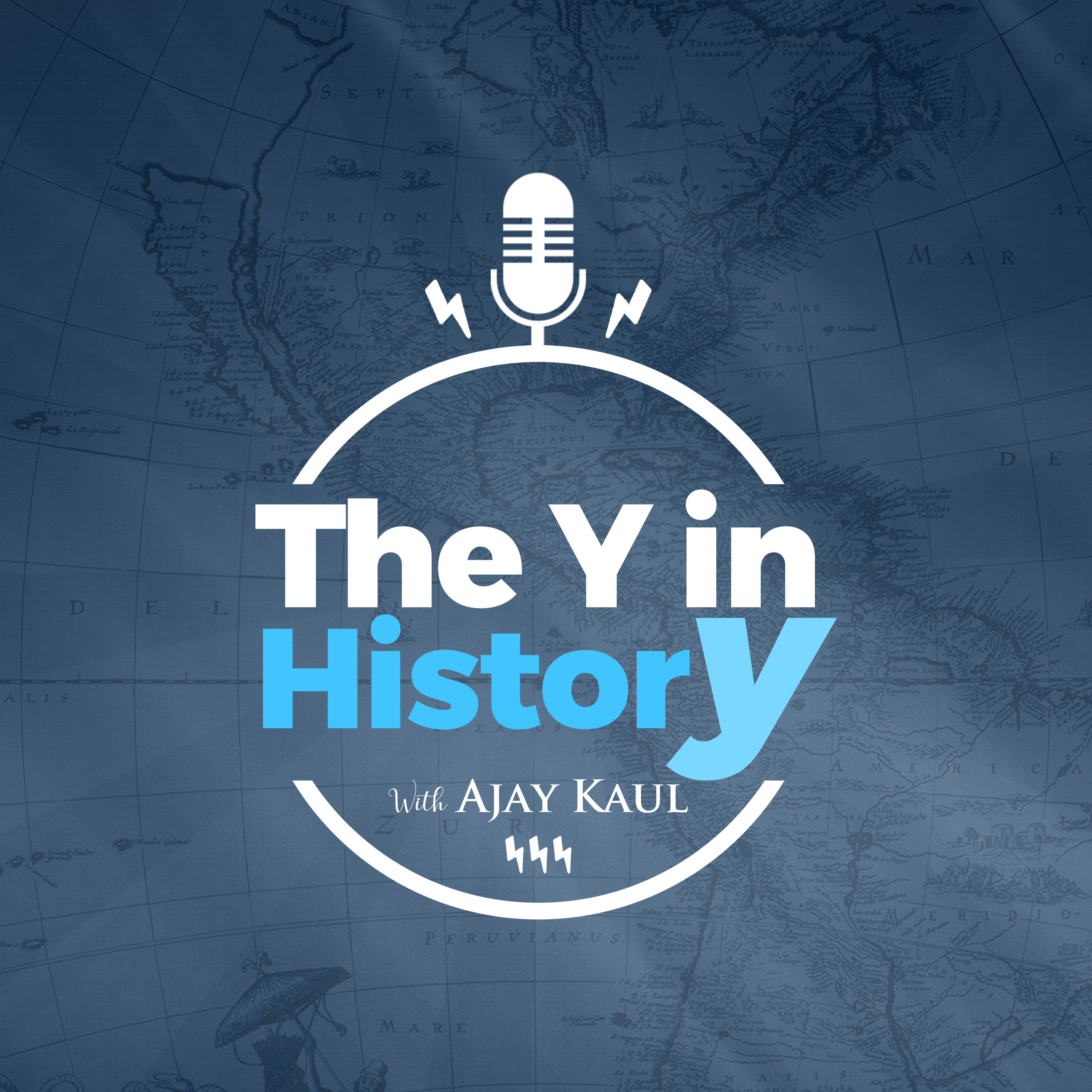
The Y in HistoryCricket - early times to 1950sCricket was spread by England through its Colonies. But it needed stars like WG Grace to make it popular enough to become a spectator sport. The England-Australia rivalry led to the Ashes Trophy and containing Aussie star, Don Bradman, led to the infamous Bodyline series between the two sides.
2024-03-3025 min
The Y in History20th Century Political AssassinationsJFK is assassinated as his convoy drives through Dallas, bringing the US and the rest of the world to a stunned standstill. Egypt's Anwar Sadat is assassinated while inspecting a parade. But Congo's Patrice Lumumba is made to disappear in the most barbaric manner.
2024-03-1629 min
The Y in HistorySilicon Valley Railway tycoon Leland Stanford lived in Santa Clara Valley and founded Stanford University in 1891. Another prominent Stanford University figure, Frederick Terman. invested heavily in businesses that would base themselves in the area and employ talented young people. One such business was the original start-up, an electrical company started in a garage by Stanford alumni William Hewlett and David Packard, Hewlett-Packard. The beginning of Silicon Valley as an epicenter of innovation began in 1955 with the arrival of the Shockley Semiconductors Laboratory. Another revolutionary point was reached in 1968 when Robert Noyce and Gordon Moore left Fairchild Semiconductor to form...
2024-03-0221 min
The Y in HistoryFinancial Coups - Haiti, FDR and GuatemalaIn 1914, American Marines rob Haiti's National Bank of $500,000 in Gold Reserves at th ebehest of the National City Bank. Wall Street looks to topple FDR and replace him with a business friendly Dictator. United Fruit, now Chiquita engineers the ouster of the democratically elected Jacobo Arbenz in Guatemala.
2024-02-1722 min
The Y in HistoryPatterns in HistoryStrategic mistakes in the Russia-Ukraine relationship or a leadership vision that led to lasting impact. This episode evaluates patterns that emerge from the learnings we've had across the previous 74 episodes. Impact from the whims of a deranged leader or the ego trip of two super powers. Some interesting patterns emerge as we traverse history.
2024-02-0321 min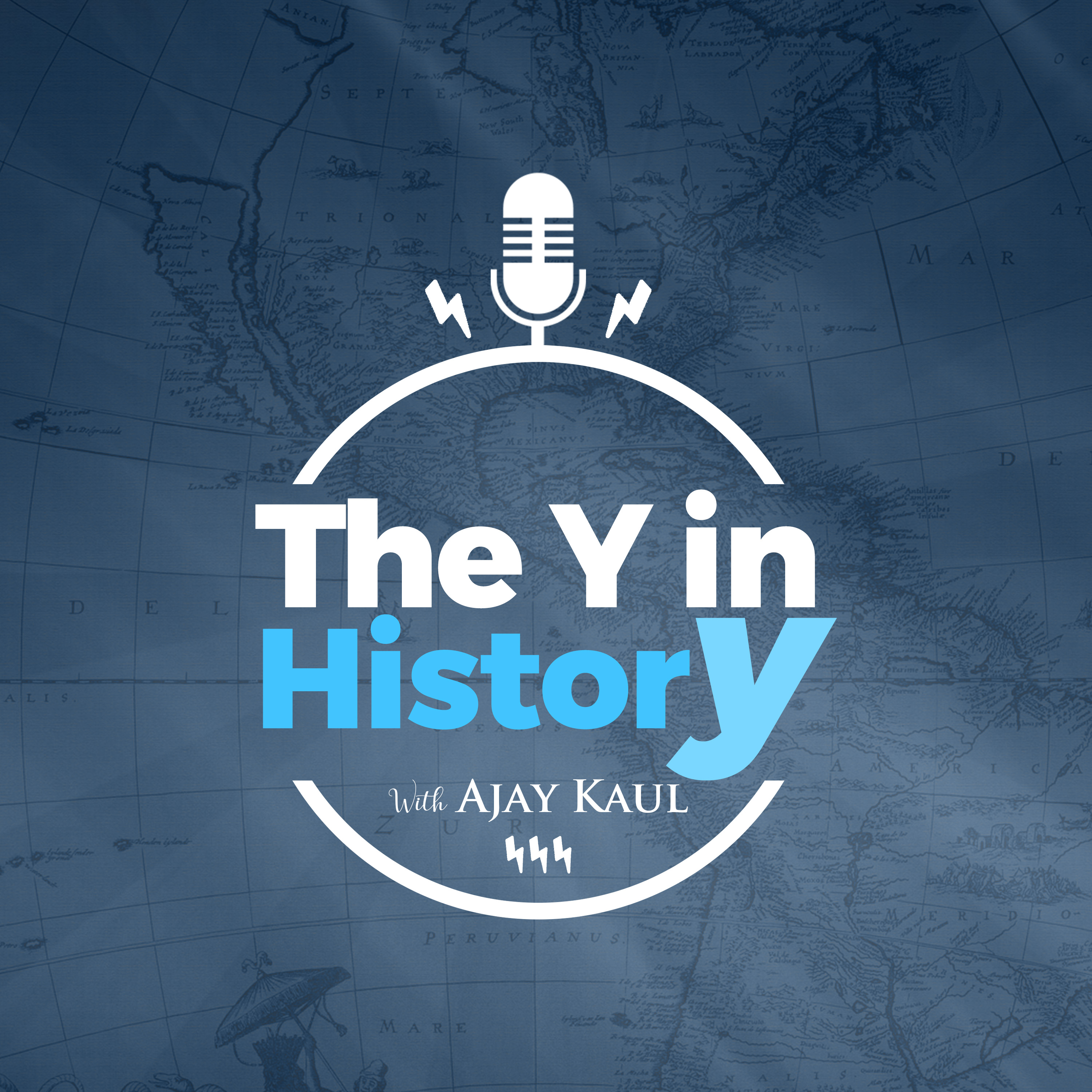
The Y in History2016 - the Panama Papers The Panama Papers refer to the 11.5 million leaked encrypted confidential documents that were the property of Panama-based law firm Mossack Fonseca. The documents were released on April 3, 2016, by the German newspaper Süddeutsche Zeitung (SZ), dubbing them the "Panama Papers." The document exposed more than 140 politicians from more than 50 countries, connected to 214,000 offshore companies in 21 different tax havens. Among those named in the leak were a dozen current or former world leaders, 128 public officials, politicians, hundreds of celebrities, business people, and other wealthy individuals.
2024-01-2021 min
The Y in HistoryArtificial Intelligence - a historyThe Turing Test in 1950 established the baseline for evaluating the real intelligence of a machine. To this day, no machine or software has been able to pass the Turing test. But do the next generation of ChatBots like ChatGPT have th epotential to pass the test?
2024-01-0621 min
The Y in HistoryThe Spice Trade The long-range spice trade began in around 1000 BCE with the movement of cinnamon, and perhaps pepper, from India and Indonesia to Egypt. For the next 1000 years, the Arabs served as the sole middlemen of the spice trade. In 1498, the Portuguese explorer Vasco da Gama made the first sea voyage from Europe to India, via the southernmost tip of Africa. The mission was driven by a desire to find a direct route to the places where spices were plentiful and cheap, cutting out the middlemen. This marked the start of direct trading between Europe and South East Asia.
2023-12-0920 min
The Y in HistoryImmigration across the globeOver half of the emigration before the 1870s was from the British Isles, with much of the remainder from northwestern Europe. As migration increased along with new transportation technologies in the 1880s, regions of intensive emigration spread south and east as far as Portugal, Russia, and Syria. Migration to Southeast Asia and lands around the Indian Ocean and South Pacific consisted of over 29 million Indians and over 19 million Chinese. Most migration from India was to colonies throughout the British empire. Legal immigration to the US expanded in the wake of the The Immigration and Nationality...
2023-11-2523 min
The Y in HistoryThe Middle East Peace AccordsResolution 242 passed by the UN Security Council on 22 November 1967 embodied the principle that has guided most of the subsequent peace plans aound the Israel-Palestine conflict - the exchange of land for peace. From the Camp David Accords of 1978 to the Oslo Agreement of 1993, several peace accords were signed by the two sides, yet peace continues to elude the region.
2023-11-1122 min
The Y in History1918: World War I - key battles, the impact and conclusionThe US entered WWI after the Zimmermann Telegram was intercepted by the British where Germany asked Mexico to join the War against the US. US entering the War turned the tide in favor of the Allies as battle fatigue started overpowering Germany and Russia. Russia saw the Czar abdicating while Germany saw its sailors refusing to fight. The War ended with Germany signing an armistice agreement with the Allies on November 11, 1918. During the course of the war, women employment reached a peak due to labor shortage as a big chunk of the labor force was fighting on the frontlines.
2023-10-2824 min
The Y in History1914 - World War I - the origins and early daysOn the eve of WWI, alliances galore across Europe with Germany aligned with Austria-Hungary and France aligned with Russia. All that is needed is a trigger and that happens on June 28, 1914 with the assassination of Archduke Franz Ferdinand, the heir to the Austria-Hungary throne. The alliances declare war on each but Germany ends up fighting on two fronts. The episode explores the conditions that led to the War and the key battles in the initial days of the War, including the first major War Crime of the War, committed by the Turks within the Ottoman Empire.
2023-10-1423 min
The Y in HistoryCold War Era-Eastern Europe UprisingsThe East German uprising of 1953 began as a series of strikes and protests at living standards; it soon turned political, with town halls being stormed amid vocal demands for German reunification. The Soviets had to intervene with military force to quell the rebellion. On August 20, 1968, the Soviet Union led Warsaw Pact troops in an invasion of Czechoslovakia to crack down on reformist trends in Prague, thereby ending the Prague Spring which had started in January of 1968.
2023-09-3021 min
The Y in HistoryHyperinflation - the worst cases in historyThe conventional marker for hyperinflation is 50% per month, first proposed in 1956 by Phillip Cagan, a professor of economics at Columbia University. Hyperinflation is the rapid, massive, and unmanageable increase in prices. In recent times, the worst cases of hyperinflation in history are Hungary from 1945 to 1946, Zimbabwe from 2007 to 2008 and Yugoslavia from 1992 to 1994. In all the three cases, the decline in the value of the existing currency was massive enough to replace it with a new currency. This episode looks into each of the above cases, their origins and how the hyperinflation was finally controlled.
2023-09-1624 min
The Y in HistoryNearshoring and China+1With a rise in geopolitical tensions with China, the World is looking to diversify its supply chain. Mexico presents an attractive nearshoring destination for manufacturers because of its proximity to the United States. The NAFTA enables free trade between the three signatory countries (US, Canada and Mexico) by reducing tariffs and other trade barriers. Vietnam, in China's neighborhood is emerging as another competitor to China, but China may beat it on the size of the infrastructure and the size of the economy. Does Africa have any candidates that could become the next manufacturing hub?
2023-09-0221 min
The Y in HistoryEpisode 64: Modern Engineering Marvels On August 16, 1858, Britain sent the United States an inaugural message via a transatlantic telegraph cable. In it, Queen Victoria congratulated President James Buchanan on their countries' mutual success at building the very cable she was using to talk to him. The International Space Station is a truly global effort: nations ranging from America to Russia provided parts for and assembled the ISS. The assembly alone took more than 30 missions. Travelling at 17,500 mph and orbiting the earth every 90 minutes, the ISS is an engineering achievement that is truly out of this world. The episode also covers t...
2023-08-1925 min
The Y in History1980 - Iran - Iraq War In September 1980, Iraqi forces launched a full-scale invasion of neighboring Iran, beginning the Iran-Iraq War. Fueled by territorial, religious and political disputes between the two nations, the conflict ended in an effective stalemate and a cease-fire nearly eight years later, after more than half a million soldiers and civilians had been killed.
2023-08-0525 min
The Y in HistoryUS Political ScandalsThe Credit Mobilier Scandal centered around Railroad construction and the Teapot Dome Scandal centrered around Oil Field contracts. In both cases, the guilty were mostly let off easy. Same was the case in the Iran-Contra Affair during Ronald Reagan's time. Though the scandal created an uproar, the guilty mostly escaped punishment. The ABSCAM though exposed deep corruption within the corridors of power and lot of the guilty paid with their political careers.
2023-07-2224 min
The Y in HistoryChina's Territorial DisputesChina's territorial disputes exist with several of its neighboring States, but the South China Sea dispute takes them to another level. The US is wary of China's growing assertiveness in the region and this has led to greater US presence and participation in the region. This episode also delves into the East China Sea dispute with Japan and the border dispute with Bhutan.
2023-07-0823 min
The Y in HistoryEpisode 60: Space Exploration - a historyThe Germans were motivated into Space Exploration due to the allure of rocket technology in design and development of ballistic missiles, which ended up being used in WWII. After the defeat of Germany in WWII, a lot of these scientists moved to the US and played a central role in the early development of space launchers for the United States. But the Soviet Union took the world by surprise in October 1957 with the launch of Sputnik, the first artificial satellite. In a matter of months, President Dwight D. Eisenhower and Congress initiated measures to build U...
2023-06-2422 min
The Y in HistoryEpisode 59: A Multipolar WorldThe G7 group of nations finds itself challenged by China and the BRICS group. The US has aligned with a few nations in the Pacific to form the QUAD, mainly to check China's growing influence in the region and the South China Sea. So, is the world turning multipolar? With the economic impact of the G7 waning, it does appear that the world is turning multipolar. But is there a silver lining to it?
2023-06-1022 min
The Y in HistoryEurope-a continent of warsEurope has 4 times more countries per million sq kilometers than Asia and this one of the contributing factors why Europe seems to be always at war. The religious differences and ethnic diversity are other reasons behind Europe's conflicts through history. After World War II, the continent was relatively quiet, but there was a lot of tension within the Soviet Satellite states like East Germany, Hungary and Czechoslovakia. The EU was an attempt to unify Europe economically, but Brexit has slammed the brakes on that plan. The Russia-Ukraine War though seems to be a temporary blip due to...
2023-05-2723 min
The Y in HistoryMost Impactful InventionsIn 1436, Johannes Gutenberg invented the printing press, setting the stage for a new era in information exchange on a massive scale and kick-starting the era of scientific discovery. The Compass made it possible for sailors to move into deep sea and explore new lands, ultimately boosting international trade. Tune in to this episode to listen to other impactful inventions through history.
2023-05-1324 min
Bowel Sounds: The Pediatric GI PodcastAjay Kaul - Esophageal Achalasia in ChildrenIn this episode, hosts Drs. Peter Lu and Temara Hajjat talk to Dr. Ajay Kaul about the evaluation and management of children with esophageal achalasia and esophageal motility disorders. We review the diagnostic tools available to evaluate esophageal motility including functional luminal impedance planimetry (FLIP), compare the treatment options available to children with esophageal achalasia, and discuss the importance of multicenter pediatric research. Dr. Kaul is the Director of the Neurogastroenterology and Motility Disorders Center at Cincinnati Children's and Professor in the University of Cincinnati Department of Pediatrics. Register and submit abstracts for the 2nd World Congress on...
2023-05-0850 min
The Y in HistoryIran, North Korea, Pakistan and Iraq - the race to Nuclear weaponsIn the 1990s, North Korea acquired access to Pakistani centrifuge technology and designs from scientist Abdul Qadeer Khan, who had directed the militarization of Pakistan's nuclear program. In exchange, Pakistan received North Korean missile technology. Through his job at URENCO, A.Q Khan methodically stole classified plans for a centrifuge, that would create bomb-grade uranium. In the fall of 1980, Israeli military intelligence reported that the Osiris nuclear reactor, 12 miles southeast of Baghdad, would become operational between July and November of 1981. Failure was not an option for Israel and PM Menachem Begin gave the go a...
2023-04-2927 min
The Y in HistoryThe British East India Company On December 31, 1600, Queen Elizabeth I granted a charter to a group of London merchants for exclusive overseas trading rights with the East Indies. The new English East India Company was a monopoly in the sense that no other British subjects could legally trade in that territory, but it faced stiff competition from the Spanish and Portuguese, who already had trading outposts in India, and also the Dutch East Indies Company, founded in 1602. Before the East India Company, most clothes in England were made out of wool and designed for durability, not fashion. But that began to change as...
2023-04-1521 min
The Y in HistoryFinancial Scandals and ConsIn 1920, Charles Ponzi started the Ponzi scheme which promised a 50% return on investments after 90 days. After a few successful months, his luck ran out as new investments dried and Ponzi came under the radar of investigators. Victor Lustig conned two buyers and sold a national monument. The two biggest corporate bankruptcies in the United States came about due to Accounting Fraud. The 1MDB moeny laundering happened at the highest levels of government, in Malaysia.
2023-04-0127 min
The Y in HistoryGreat Environmental DisastersThe Dust Bowl in the 1930s caused by extensive soil erosion in the southern plains region of the United States, led to severe dust storms during a period of extensive drought. For five days in December 1952, the Great Smog of London smothered the city, wreaking havoc and killing thousands. In the early 1950s, the Minamata Bay was the center of the outbreak of the Minamata Disease caused by Mercury poisoning caused by toxic waste from the nearby Chisso Chemical Plant. In December 1984, the world's worst industrial disaster happened in the City of Bhopal i...
2023-03-1827 min
The Y in History1967 - The Arab-Israeli Six Day War On May 15, 1967 Egyptian President Nasser ordered his army to march into Sinai Peninsula and then demanded that the United Nations pull its peacekeepers from the peninsula. Then he declared the Straits of Tiran, closed to Israeli shipping. Subsequently, on June 5, 1967, the Israel Defense Forces initiated Operation Focus, a coordinated aerial attack on Egypt. After catching the Egyptians by surprise, they assaulted 18 different airfields and eliminated roughly 90 percent of the Egyptian air force as it sat on the ground. Israel then expanded the range of its attack and decimated the air forces of Jordan, Syria and Iraq.
2023-03-0428 min
The Y in HistoryThe Transatlantic Slave TradeThe trans-Atlantic slave trade was one leg of a three-part system known as the triangular trade. The forming of the triangle began when European ships, carrying firearms and manufactured goods, sailed to Africa, where the commodities were traded for enslaved men, women and children. Next, the same ships transported the human cargo across the Atlantic Ocean to the Americas. This horrific journey was called the Middle Passage. Completing the triangle, the ships—having disembarked the enslaved Africans—were reloaded with cotton, sugar, tobacco and other cash crops produced by slave labor, and returned to Europe. The c...
2023-02-1821 min
The Y in History2021 - US withdrawal from AfghanistanIn December 2001, Afghan delegates convened in Bonn, Germany, by the United Nations selected Hamid Karzai to serve as head of an interim national government, marking the beginning of post-Taliban governance. Nine years later, in late 2010, secret negotiations began between a Taliban representative and some U.S. officials. The talks centered largely on confidence-building measures, specifically the issues of a prisoner exchange and the opening of a Taliban political office in Doha, Qatar. In mid-2018, President Trump was reportedly frustrated with the lack of military progress against the Taliban, and he ordered formal and direct U...
2023-02-0420 min
The Y in History2022 - The Russia-Ukraine WarOn 24 February 2022, Russia invaded Ukraine with the expectation of capture of its capital Kyiv within 3 days and a subsequent change of government in Ukraine. But within a month, the Russian forces were beating a retreat into their comfort zone in Eastern Ukraine, realizing their inability to achieve their primary battle aims. In the East too, the going has been tough. From corruption to poor planning to underestimating the support from NATO, Russia committed several blunders to end up pushed back into 15% of Ukrainian territory in the East by December of 2022.
2023-01-2122 min
The Y in HistoryGreat Spy Operations (Mossad, CIA, KGB)Post WWII, Israel hunts and captures the dreaded Nazi Official, Adolph Eichmann in a foreign country and smuggles him out, to bring him to justice in Israel. The CIA conducts the espionage coup of the century by taking over a key crypto provider without its clients having any knowledge. The KGB masterminds the first documented case of cyber espionage.
2023-01-0726 min
The Y in HistoryCoffee and Tea - the global beveragesCoffee was harvested from wild bushes in Ethiopia and transported across the Red Sea to Yemen, starting in the middle of the fifteenth century. Coffee seems to have spread rapidly in the Near East. By the time the Ottoman Turks conquered Egypt from the Mamelukes in 1517, coffee-drinking was already widespread in Cairo.The spread of coffee to the rest of the world took place in the seventeenth century. The origin of tea in the world started in China around 2750 BC. The Dutch were the first to drink tea in Europe, shipping it in 1610, with the introduction to...
2022-12-1023 min
The Y in HistoryTaiwan - ROC vs PRCThe Treaty of Shimonoseki in 1895 makes China cede Taiwan and the Peng-hu Islands to Japan in perpetuity. Tokyo's first attempt at colonialism is a great success as it establishes order, eradicating disease, building infrastructure, and creating a modern economy. Taiwan soon becomes the most-advanced place in East Asia outside Japan itself. Post WWII, Taiwan is handed over to China, but Chiang Kai-Shek is defeated by Mao and he flees to Taiwan and is seated in the UN Security Council as ROC (Republic of China). Chiang surrounds himself with Economists and Technocrats to build a strong Taiwan economy...
2022-11-1224 min
The Y in History1962 - the India-China WarIn October 1950, Mao Tse Tung decides to invade Tibet.In 1953, India finds out that China has built a road in India's Aksai Chin region to connect Mainland China to Tibet. India protests and China suggests that it will withdraw claim on any territory south of the McMahon line in exchange for retaining Aksai Chin. This is rejected and India implements the Forward Policy to push back China. On October 20, 1962, China make 2 simultaneous attacks on the Indian border, 1000 kilometers apart. The India China War of 1962 starts. As China keeps making inroads, Nehru appeals to President Kennedy for help.
2022-10-2929 min
The Y in History1962 - the Cuban Missile CrisisIn October of 1962, President John F. Kennedy was stunned to learn that the Soviet Union was installing nuclear-armed medium- and intermediate-range ballistic missiles in Cuba. Though Moscow was trying to balance out the equation between the two Super Powers, JFK was against any Soviet presence in the Western Hemisphere. Through a combination of involving the UN Security Council, to enforcing a Naval Blockade around Cuba to initiating an indirect negotiation with Premier Khrushchev, President Kennedy displayed leadership, restraint and pragmatism to pull the world out of a nuclear showdown.
2022-10-1523 min
The Y in HistoryHistory of DemocracyOn June 15, 1215, King John of England signs the Magna Carta declaring the King to be subject to the rule of law and documenting the liberties held by free men. The Magna Carta lays the foundation for individual rights enshrined in several Constitutions across the globe, including the US Constitution. The Industrial Revolution creates a new educated Middle Class which further promotes a free society and in essence, a democracy. Further gains are made in the 19th Century and post WWII, a big portion of Europe turns democratic. After the collapse of the Soviet Union democracy spreads even further but in...
2022-10-0123 min
The Y in HistoryHistory of MoneyThe first bank bailout in history, happened in Rome in 33 A.D. The first medium of exchange was the barter system and this was replaced by Commodity Money. Coins were first minted in Lydia (modern day Turkey) and Chinese were the first to make paper money. Money continued to evolve and the latest disruption has been digital currency, aka Bitcoin.
2022-09-1725 min
The Y in History1760 - the Industrial RevolutionAround late 18th Century the acceleration in the processes of technical innovation brought about new tools and machines which led to the concept of mass production, thereby triggering an Industrial Revolution. It's impact was profound - from the creation of a new Middle Class to a new set of wealthy industrialists. Capitalism swept the globe and Adam Smith wrote the Wealth of Nations. The wealth gap led to the emergence of new concepts of Marxism and Communism.
2022-09-0321 min
The Y in History1978 China - the emergence of an Economic PowerIn 1978 Deng Xiaoping becomes China's new leader after the death of Mao Zedong in 1976. He takes on a pragmatic approach towards reform, opening up SEZs (Special Economic Zones along the Pearl River Delta, overlooking Hong Kong. It's an experiment and will be expanded to other parts of the country, if successful. Hong Kong and Taiwan show interest and invest, triggering the biggest economic turnaround in history.
2022-08-2023 min
The Y in HistoryCold War Spies and Espionage - IIgor Gouzenko, a Soviet cipher clerk stationed at the Soviet Union's Ottawa embassy during the Second World War, defects to the Canadian government with proof that his country had been spying on its wartime allies: Canada, Britain and the United States. This prompts the Gouzenko Affair. His defection is considered the start of the Cold War. In 1946 the United States, working with Britain, deciphers the code Moscow used to send its telegraph cables. As Venona decryption improves in the late 1940s and early 1950s, it blows the cover of several spies, notably the Atomic Bomb spies.
2022-08-0623 min
The Y in HistoryAmerica's Political PartiesIn his farewell address, President George Washington warned against political parties, particularly those based on geographic loyalties. However his own Cabinet fostered an intense rivalry between Thomas Jefferson and Alexander Hamilton. Jeffersonians formed the Democratic-Republican party, while the Hamiltonians formed the Federalist party. The Federalist Party would gradually fade into oblivion and the Democratic Party split into the Democrats and the National Republicans. The National Republicans become the Whig Party. The political and economic environment eventually kindles rivalries between the 2 parties and both evolve with respect to their beliefs and ideologies.
2022-07-2323 min
The Y in History1989 The Internet - from concept to global adoptionTracing the history of the Worldwide Web or the Internet. In 1989. Tim Berners-Lee at CERN, Geneva, comes up with a proposal to get the CERN scientists talk to each other via their computers so they can conduct their experiments remotely. In December of 1990 he sets up the first successful communication between a Web browser and server via the Internet. Initially, the internet is just a medium for research and collaboration, but soon it evolves into a platform for eCommerce, auctions and music sharing before becoming a huge social media platform.
2022-07-0923 min
The Y in HistoryThe United Kingdom, Great Britain and EnglandThe United Kingdom comprises the nations of England, Scotland, Wales and Northern Ireland. It once comprised both big islands of the British Isles. The Republic of Ireland declared independence after WWII leaving the United Kingdom as the United Kingdom of Great Britain and Northern Ireland. As England lost its economic hegemony post WWII, unrest in Northern Ireland came center stage. Post Brexit, Scotland has started having second thoughts and Northern Ireland too is not too happy about it.
2022-06-2520 min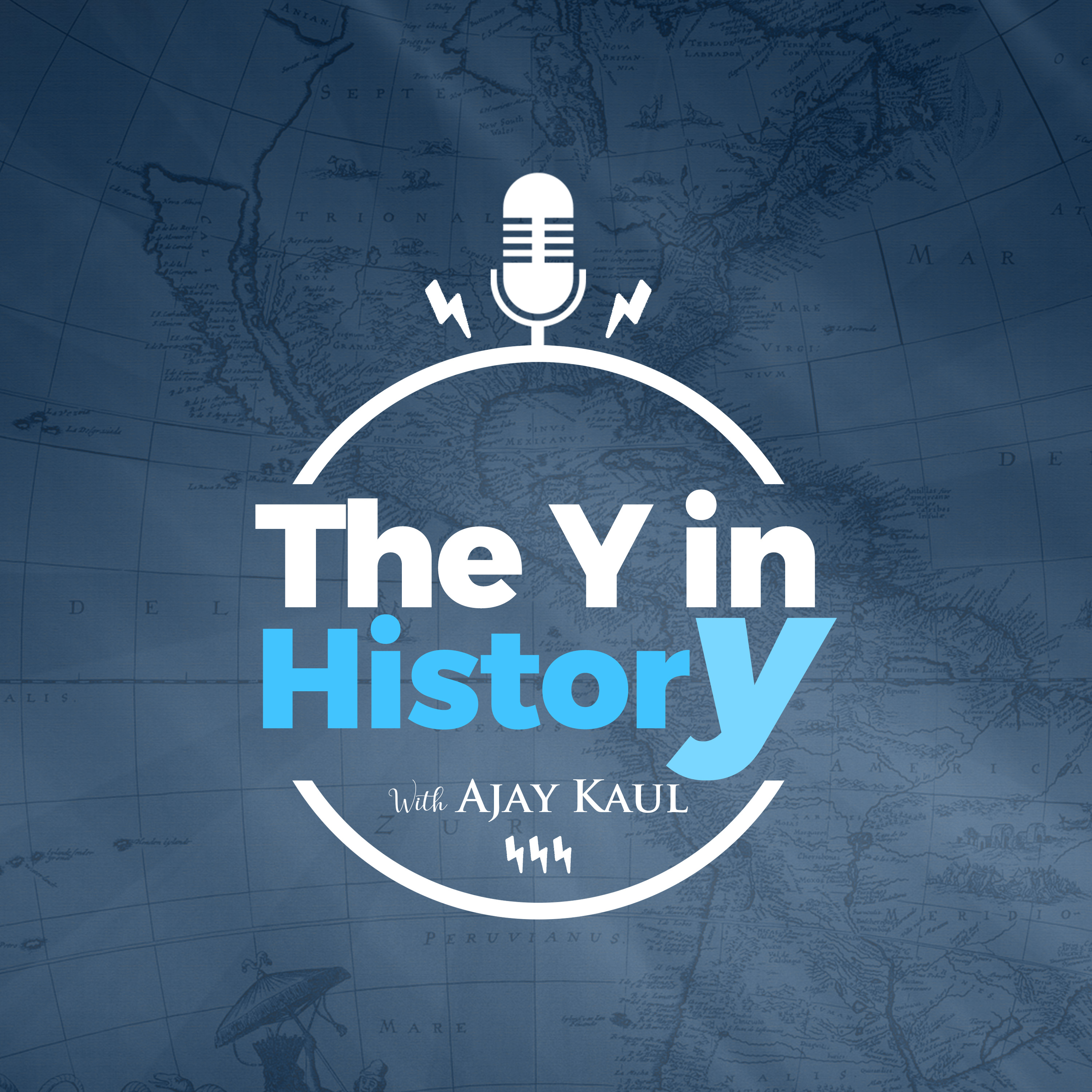
The Y in HistoryEconomic Crises in modern timesFrom the Credit Crisis of 1772 to the 2008 Housing Crisis, most of the economic crises seem to have been triggered by excessive borrowing to seek returns on rising assets. The Oil Shock of 1973 though was an exception and was a demand and supply issue, leading to runway inflation.
2022-06-1125 min
The Y in History2021-The Global Supply Chain CrisisTracing the history of the evolution of the Global Supply Chain from the Ancient times when the routes like the Silk Road through Central Asia and the Spice Route over the Indian Ocean were mostly linear chains that took a finished product to its ultimate destination. The British colonialization of India was based on the capture of the supply chain of cotton, which proved adverse to the Indian economy. With the advances in shipping and communication technology, East Asia became an economical manufacturing hub. With the pandemic, mew bottlenecks arose, prompting a fresh look at the Supply Chain.
2022-05-2822 min
The Y in HistoryWomen's Rights - Obstacles, Wins and ChallengesIn July 1848, a group of activists gather in Seneca Falls, New York, to press for women's rights. Subsequently, in 1893, New Zealand becomes the first country to grant voting Rights to Women. It takes another 27 years, before women in the US can finally vote. Access to birth control and safe abortion becomes the next obstacle to overcome and the 1973 Roe v Wade judgement deems ban on abortion, unlawful. The Nordic countries seem to outperform the rest when it comes to gender parity, but why?
2022-05-1422 min
The Y in History1991 Soviet Union - the political and economic collapseOn December 25, 1991, the Soviet flag flies over the Kremlin in Moscow for the last time. Soviet leader Mikhail Gorbachev announces that after 74 years as one of the world's most powerful nations, the Soviet Union no longer exists, and will break up in 15 separate countries. Though the groundwork of the political and economic collapse was laid during the later part of the reign of Leonid Brezhnev, one economic asset will lead to the economic collapse of the Soviet Union.
2022-04-3021 min
The Y in History1958 Pakistan - the military as the governmentTracing the events in Pakistan immediately post independence - its challenges towards drafting a Constitution and the delicate balance between democracy, secularism, religious right and the military. The biggest challenge and issue was Pakistan's relationship with the Bengali speaking majority in East Pakistan.
2022-04-1623 min
The Y in HistoryThe Geneva Protocol - the convention and the violationsTracing the history of creation of treaties that consolidated, made up the Geneva Protocol. The Protocol starts with protecting the rights of the wounded soldiers in battle and expands to prisoners of war and finally expanding into protecting rights of civilians during a conflict. But will the world adhere to the guidelines or blatantly flout all norms?
2022-04-0221 min
The Y in HistoryYugoslavia and Tito's defiance against the Soviet UnionAfter WWII Yugoslavia under its new leader Josip Broz Tito refuses to take orders from Moscow. Tito takes Yugoslavia out of the Soviet bloc, successfully defying Stalin's determination to destroy him. Tito co-founds the Non-Aligned movement with India and Egypt and builds political and economic clout across the globe. His balancing act keeps Soviet Russia at bay and makes Yugoslavia enjoy political and economic freedom.
2022-03-1919 min
The Y in HistoryEconomic Sanctions-the history and effectivenessTracing the history of economic sanctions from the time of the League of Nations. Evaluating the factors that contribute towards the success of economic sanctions including a few case studies like that of North Korea and the 1958 Night Frost Crisis of Finland.
2022-03-0520 min
The Y in History2016 Brexit - the politics, the economics and the physicsAfter a delayed entry into the European Economic Community (EEC) in 1973, the UK institutes a referendum in 1975 but votes to remain in the EEC. In 2016, Prime Minister David Cameron initiates another referendum and this time the UK votes exit, though the vote is heavily divided across regions (England, Scotland, Wales and Northern Ireland) and age groups. The details and challenges of exit then start dawning on the politicians as the finalization of the exit leads to drama and comedy.
2022-02-1921 min
The Y in History1948 Balochistan - the Khan, the British and PakistanTracing the modern history of Balochistan and the 1876 Treaty with the British. Khalat declares independence in August 1947 but is soon forced to accede to Pakistan. Once again, there's foul play by the British and Pakistan.
2022-02-0520 min